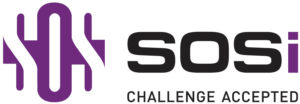
Pre-conference workshops are three-hour courses designed to help language professionals enhance their skills and knowledge on a particular topic.
Additional registration is required. Pre-conference workshops are available as an add-on item to the main conference or can be registered for individually.
Space is limited! All workshops will have limited seating to ensure an optimal learning experience.
Earn continuing education units (CEUs). All workshops will be submitted to receive continuing education credit. Review the conference CEU page for complete details.
SCHEDULE
EDUCATIONAL SESSIONS
SCHOLARSHIP PROGRAM
EXHIBITORS
SPONSORS
ADVERTISING
HOTEL
REGISTRATION INFORMATION
Friday, May 17: Morning Workshops
9:00 AM – NOON EDT
A minimum participant threshold is required for all pre-conference workshops. If a session you choose is cancelled, you will have the option of choosing an alternate session or a full refund. These sessions have limited capacity. Reserve your spot early!
ANATOMY OF A DEPOSITION [ETHICS]
Friday, May 17, 9:00 AM – NOON
Presenter: Judy Jenner
Language: Language Neutral
Level: All Levels
Attendee rates:
Early Bird Rate: $130 members, $175 non-members;
After April 1: $155 members, $200 non-members;
After May 6: $180 members, $225 non-members

Session Description: As some court systems have reduced the rates for judiciary interpreters, many court interpreters actively look for assignments outside the court system. There are plenty of opportunities available, and depositions, which are typically held at law offices, are one of those proceedings that often require interpreters. Little has been written about the role of interpreters in depositions, and this workshop will provide an overview of the structure of depositions, the parties, the objectives, the terminology, etc. Attendees will receive plenty of real-life advice on how to manage the flow of information, how to deal with difficult situations, and exactly what to expect during the course of the deposition. In addition, there will be an interactive session on ethics during depositions and a review of pesky situations and how to deal with them. The presenter is a federally certified court interpreter who has interpreted more than 2,000 depositions. She is not a lawyer, but is married to one. This workshop will be held in English and is thus suitable for interpreters of all languages, but some Spanish-language examples will be provided.
Objectives: Attendees will learn at which point in the judiciary process depositions are held, how they are structured, who the players are, what the interpreter should know to prepare, what to expect during the proceedings, how to handle the flow of information, how to deal with difficult situations, etc. In addition, they will gain a good understanding of specific depositions involving common cases, such as car accidents and personal injury claims.
Judy Jenner is a Spanish and German business and legal translator and a federally certified Spanish court interpreter and conference interpreter. She has an MBA in marketing from the University of Nevada-Las Vegas, a master’s degree in conference interpreting from York University in Canada, and runs her boutique translation and interpreting business, Twin Translations, with her twin sister Dagmar. She was born in Austria and grew up in Mexico City. She is a former in-house translation department manager. She writes the blog Translation Times and the “Entrepreneurial Linguist” column for The ATA Chronicle, serves as one of the ATA spokespersons, and teaches interpretation at the University of California-San Diego and at the University of Nevada, Las Vegas. She is the co-author of The Entrepreneurial Linguist: The Business-School Approach to Freelance Translation. She’s a frequent speaker at T&I conferences around the world, mostly online these days. Pre-pandemic, she flew a lot for her interpreting assignments and one of her special talents is memorizing airport codes.
INTERPRETING AT THE SPEED OF COURT: TECHNIQUES TO KEEP PACE WITH FAST SPEAKERS [ETHICS]
Friday, May 17, 9:00 AM – NOON
Presenters: James Plunkett III
Language: Language Neutral
Level: Intermediate / Advanced
Attendee rates:
Early Bird Rate: $130 members, $175 non-members;
After April 1: $155 members, $200 non-members;
After May 6: $180 members, $225 non-members

Session Description: To accomplish the goal, interpreters will understand the reason for fast speech in court settings, understand fast speech in English at rates of up to 180 words per minute, develop analytical skills with guided exercises, manage pauses, work with omissions, use more concise target language, and build up speed by interpreting short passages at rates of up to 180 words per minute. Students will record their renditions, review them, make corrections, and plan new strategies to improve their accuracy and completeness at higher rates of speed.
Attendees must bring their own recording devices along with headsets or earphones, pens, and highlighters.
Objectives: To prepare interpreters to interpret fast speech accurately and completely while using the simultaneous mode.
James Plunkett III is a nationally-known interpreter instructor and trainer of trainers. He also trains new judges and court staff on how to work with court interpreters. He is certified by the AOUSC as a Spanish and English court interpreter. He is a rater for a national credentialing program for interpreters. He has worked as a court interpreter for the 13th Judicial Circuit in Florida and as the Coordinator of Interpreting Services and Language Access Program for the District of Columbia Courts. He is staff interpreter of the U.S. District Court, based in Tampa, FL. He holds a BA degree in General Social Studies from Providence College. He was raised in Lima, Peru. He also communicates in Portuguese, some French and basic Mandarin.
HOW TO PREPARE FOR AN INTERPRETING EXAM
Friday, May 17, 9:00 AM – NOON
Presenters: Corinne McKay
Language: Language Neutral
Level: All Levels
Attendee rates:
Early Bird Rate: $130 members, $175 non-members;
After April 1: $155 members, $200 non-members;
After May 6: $180 members, $225 non-members

Session Description: Exams are a reality of life as an interpreter, and passing an interpreting exam can open new markets and greater income potential. In this session, we’ll examine how to create a “training plan” for any type of interpreting exam, how to make the best use of available resources to prepare for the exam, and how to set the stage for a successful exam day. The speaker will share practical tips based on her experience preparing for and passing (on the first try!) three sets of interpreting exams.
Objectives: Attendees will learn how to create a robust training plan for an interpreting exam (with a focus on, but not limited to, court interpreting exams), how to make the best use of available preparation resources, and how to set the stage for a successful exam day.
Corinne McKay is an ATA-certified French to English translator, a state-certified French court interpreter, and holds a Master of Conference Interpreting from Glendon College. A frequent speaker and trainer on T&I topics, her book, How to Succeed as a Freelance Translator, has become a go-to reference for the language professions, with over 15,000 copies sold. She served as president of the American Translators Association from 2017-2019.
SECOND SIGHT: A NEW APPROACH TO SIGHT TRANSLATION FOR SIMULTANEOUS
Friday, May 17, 9:00 AM – NOON
Presenters: Agustín Servín de la Mora
Language: Language Neutral
Level: All levels
Attendee rates:
Early Bird Rate: $130 members, $175 non-members;
After April 1: $155 members, $200 non-members;
After May 6: $180 members, $225 non-members
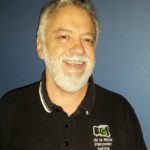
Session Description: Welcome to this dynamic sight translation workshop, tailored for court interpreters of all proficiency levels. This interactive session is meticulously designed to enhance your linguistic agility. Engage in real-life scenarios where legal documents and proceedings are swiftly translated on sight. Sharpen your skills through hands-on exercises that span diverse legal contexts, ensuring relevance to every interpreter, from beginners to seasoned professionals. Participants will receive constructive feedback, fostering a supportive learning environment. Dive into group activities, stimulating discussions, and simulated courtroom settings to fortify your command over idiomatic expressions and legal terminology. This workshop transcends traditional language instruction, offering a comprehensive experience that addresses the nuanced demands of court interpretation. Elevate your expertise and confidence, providing you with invaluable tools to navigate the intricacies of sight translation in the courtroom.
Objectives: In this workshop, participants will hone their sight translation skills in legal contexts. The focus is on achieving precision in translating legal documents and proceedings on sight. Participants will receive direct and personalized feedback, identifying strengths and areas for improvement to fuel ongoing professional growth. Through hands-on exercises and simulated courtroom settings, students will bridge theory and practice, gaining confidence in real-world applications. This seminar aims to equip interpreters of all levels with invaluable tools, fostering cultural understanding and ensuring they leave with enhanced expertise, ready to navigate the intricacies of court interpretation with precision and confidence.
Agustín Servín de la Mora is the President of DE LA MORA Interpreter Training. He was born and raised in Mexico City, Mexico, and has been a professional interpreter for 30 years, both as a freelance and a staff interpreter. He is one of the supervisor raters for the National Center for State Courts and has been a lead rater for the federal and consortium oral exams for court interpreters. He was the lead interpreter for the Ninth Judicial Circuit for over a decade, and served as a member of the Project Advisory Committee responsible for the creation of the National Standards for Healthcare Interpreter Training Programs for the NCIHC. He was a member of the Florida Court Interpreter Certification Board and a voting member of the Technical Committee of the National Consortium for Interpreter Certification. He is a state and federally certified court interpreter, as well as a certified medical interpreter. He has been a consultant for the National Center for State Courts for 20 years.
Friday, May 17: Afternoon Workshops
2:00 PM – 5:00 PM EDT
A minimum participant threshold is required for all pre-conference workshops. If a session you choose is cancelled, you will have the option of choosing an alternate session or a full refund. These sessions have limited capacity. Reserve your spot early!
IMPROVING YOUR MEMORY
Friday, May 17, 2:00 PM – 5:00 PM
Presenters: Javier Castillo, Jr.
Language: Language Neutral
Level: All Levels
Attendee rates:
Early Bird Rate: $130 members, $175 non-members;
After April 1: $155 members, $200 non-members;
After May 6: $180 members, $225 non-members

Session Description: In this workshop, participants will learn key techniques to improve their memory and recall. The strategies learned will aid both their short and long-term memory. Being able to interpret long passages from the witness stand as well as all the items on one’s grocery list will better all aspects of life.
Objectives: In this course, participants will learn tips and techniques to supercharge their memory and recall. Short-term and long-term retention will improve.
Javier Castillo is president of Castillo Language Services, Inc. in Greenville, NC. He is an interpreter, translator, consultant and internationally recognized speaker. He is a Federally Certified Court Interpreter, NC AOC certified court interpreter, a Certified Medical Interpreter, (CCHI) and contract interpreter for the U.S. Department of State. Since 2007, Javier has offered training workshops for court, medical, conference and community interpreters across the United States. He has provided in-house training for interpreters at hospitals, Administrative Offices of the Court, and Departments of Social Services. He recently developed and taught training courses for the staff and contract interpreters of the U.S. Department of State Office of Language Services.
EMPOWERING LEGAL INTERPRETERS WITH AI TOOLS [ETHICS] ***SOLD OUT***
Friday, May 17, 2:00 PM – 5:00 PM
Presenters: Tianlu Jia Redmon
Language: Language Neutral
Level: All Levels
Attendee rates: **SOLD OUT**
Early Bird Rate: $130 members, $175 non-members;
After April 1: $155 members, $200 non-members;
After May 6: $180 members, $225 non-members

Session Description: “Empowering Legal Interpreters with AI Tools” is a forward-looking session that addresses the critical role of Artificial Intelligence (AI) in the evolution of legal interpreting. The session begins by exploring the ‘why’—emphasizing the inevitability and benefits of AI in today’s technological landscape. It highlights the importance of embracing AI rather than fearing it, acknowledging AI’s potential to help us improve accuracy and efficiency and handle complex legal interpretation work with ease. This part of the discussion aims to demystify AI technologies, encouraging interpreters to view these advancements as allies in their professional development. Following this, the session delves into the ‘what’—introducing a range of AI tools that are currently reshaping (or could potentially reshape) legal interpretation. Attendees will be introduced to a range of innovations, from preparation aids to speech recognition software, and how these tools can be integrated into their daily practice. Finally, the session will provide practical guidance on the ‘how’—implementing these tools in real-world scenarios. This includes interactive demonstrations of AI in action, best and ethical practices for integrating AI tools into the workflow of legal interpreters, and strategies to balance the human expertise with AI capabilities. This session is a must-attend for legal interpreters keen on staying ahead in a technology-driven world, offering valuable insights into the future of their profession.
Objectives: This session aims to equip legal interpreters with a comprehensive understanding of the significance and applications of Artificial Intelligence (AI) in our field. Attendees will gain a foundational grasp of the reasons behind the integration of AI into legal interpreting workflow, recognizing its potential to enhance accuracy, efficiency, and handle complex legal interpretation scenarios. The session also seeks to transform any apprehension regarding AI into a positive outlook, framing these technologies as valuable assets in our profession.
Tianlu Jia Redmon is experienced in interpreting high-stakes cases at court and in depositions in Texas and beyond. She is a Texas Master Licensed Court Interpreter for Mandarin and approved to interpret in U.S. federal courts. She is an ATA-certified English to/from Chinese translator. She is a regular speaker at ATA and other conferences on legal interpreting and translation topics.
MASTERING THE COURTROOM: A COMPREHENSIVE GUIDE TO IMMIGRATION PROCEEDINGS [Sponsored by SOSi]
Friday, May 17, 2:00 PM – 5:00 PM
Presenter: Francesca Samuel
Language: Language Neutral
Level: All Levels
Attendee rates:
Early Bird Rate: $130 members, $175 non-members;
After April 1: $155 members, $200 non-members;
After May 6: $180 members, $225 non-members

Session Description: Unlock the secrets of immigration court proceedings with our dynamic and enlightening presentation. Dive into the essentials of court ethics, delve into the workings of the Executive Office for Immigration Review (EOIR), and the crucial role of interpreters in a range of legal scenarios. Whether it’s navigating asylum requests, mastering the nuances of deportation laws, or understanding protective legislation like the UN Convention Against Torture, this session is your roadmap to competence. Experience an in-depth exploration of the interpreter’s role across civil, federal, and state criminal proceedings, and sharpen your skills in distinguishing between standard legal language and specialized immigration terms. Enhance your interpretations with cultural insights that bring accuracy and sensitivity to every word. You will be exposed to pivotal dos and don’ts for document preparation and translation in immigration contexts. The session will also highlight the importance of preparation before arriving in court. Enhance your professional toolkit with access to comprehensive glossaries in both English and Spanish, along with a detailed breakdown of EOIR’s legal sections. This is more than a session; it’s an investment in your professional excellence in the field of legal interpretation. Don’t miss the opportunity to become better versed in the complex world of immigration law.
Francesca Samuel is a freelance interpreter/translator and founder and president of A la Carte Translations, a web-based translation business. She has been a member of NAJIT and ATA since 1999. Francesca is a graduate of the Pima College Translation and Interpreting Program and has 22+ yrs. experience as an immigration court contract interpreter and approximately 30 years of experience as a translator. Francesca is an avid volunteer and passionate about the profession. She has presented on immigration, business management scam prevention and social media at several annual conferences including FIT, NAJIT, CFI, ATA and ATI and continues to spread awareness about the working conditions of immigration court interpreters. She served as administrator of the Spanish Language Division of the American Translators Assoc. from 2012-2016 as well as president of Arizona Translators and Interpreters (ATI) during the same period. A proud native of Mayagüez, Puerto Rico, Francesca lived in New York City before moving out West to Los Angeles and eventually settling down in Tucson, AZ with her husband and children.
LANGUAGE BUILDING BLOCKS FOR EXPERT PERFORMANCE IN THE SIMULTANEOUS MODE AND BEYOND [ETHICS]
Friday, May 17, 2:00 PM – 5:00 PM
Presenters: Janis Palma
Language: Language Neutral
Level: All Levels
Attendee rates:
Early Bird Rate: $130 members, $175 non-members;
After April 1: $155 members, $200 non-members;
After May 6: $180 members, $225 non-members

Session Description: Interpreting in legal settings is growing as a highly respected and specialized profession. Judiciary interpreters must be constantly rising to the challenge of fast-paced, complex discourse, with very little control over the source language speakers or the contents of their courtroom utterances. This scenario requires a top-level expertise in both the source and the target language to be able to keep a comfortable pace for the interpreter as well as the listener, while also ensuring the full transfer of information to which an LEP individual is entitled under the Fifth, Sixth, and Fourteenth Amendments to the U.S. Constitution. This workshop is designed to provide interpreters with the resources and strategies to acquire an expert’s command of the most basic instrument at our disposal, language, through concrete examples and practical exercises.
NOTE: While the workshop examples and exercises will be in English, attendees will be working into their target language.
Objectives: At the end of this workshop, attendees will be able to identify the verbal and nonverbal elements of discourse that contribute to the construction of meaning in spoken language, recognize when and how source language discourse can be reconstructed in the target language within idiomatic parameters that enhance a rendition’s effectiveness, and assess situational, relational and cultural contexts that can impact the faithful transfer of meaning and develop strategies to minimize loss of meaning while maximizing efficiency.
Janis Palma is an English-Spanish interpreter and translator with more than 40 years of experience. She became federally certified as a judiciary interpreter in 1981 and certified by NAJIT as an interpreter and translator in 2004. She currently holds the State of Texas Master Court Interpreter designation. Ms. Palma has worked as an independent contractor for private attorneys, government agencies, state and federal courts, and worked as a staff and supervisory interpreter for the U.S. District Court in Puerto Rico. She is a former Chair of the NAJIT Board of Directors and former President of SSTI—the Society for the Study of Translation and Interpretation. She is now semi-retired and living in San Antonio, Texas. Ms. Palma recently obtained a second master’s degree in legal studies (MLS) and is currently working towards her PhD in Language Studies. She has also created a nonprofit, IKIGAI, to further the education and credentialing of interpreters in the legal domain.
BUILDING A NOTE TAKING SYSTEM FROM THE GROUND UP
Friday, May 17, 2:00 PM – 5:00 PM
Presenters: Ellen Wingo
Language: Language Neutral
Level: All Levels
Attendee rates:
Early Bird Rate: $130 members, $175 non-members;
After April 1: $155 members, $200 non-members;
After May 6: $180 members, $225 non-members

Session Description: For many, note-taking is the great mystery of consecutive interpretation. It doesn’t have to be! Note-taking is a skill that is learned and developed with practice that can ultimately support the interpreter’s memory, improve accuracy and performance, and increase the length of interpreted statements. This course is designed to break note-taking down into its basic building blocks so that participants can build their own systems designed to serve their needs. Rather than limiting participants to any particular method, this course introduces elements from many different note-taking techniques, allowing them to knit together a system that works best for them. They will learn how to adapt their system to any length of speech. The session will focus on the use of symbols, abbreviations, the space on the page, and much more! Attendees should come prepared for lots of practical exercises to help in crafting their systems, and they will learn how to practice their new systems until they become second nature. This is a language-neutral workshop designed both for beginners who are starting from scratch, as well as experienced interpreters who wish to improve their skills.
Objectives: In this session, attendees will learn how to build their own flexible note-taking system for consecutive interpretation that will support their memory and improve their performance. They will learn about the different elements and techniques that form any note-taking system: what to write, what not to write, abbreviations, symbols, and the structure on the page. The class will discuss what works and how interpreters can take advantage of the way the brain processes information. They will learn to analyze their own work and how to practice note-taking for success.
Ellen Wingo is a state and federally certified court interpreter and worked as a contract seminar interpreter with the Department of State for many years. Based in Washington, DC, she has over fifteen years’ experience working in courts, as well as in conference settings. She has taught classes on note-taking and consecutive interpretation in the DC area, to both new and veteran interpreters. She holds a master’s degree in Translation and Interpretation from the Middlebury Institute of International Studies at Monterey.
COURT TOUR
Friday, May 17, MEETS AT 1 PM
Court Address: Providence County Courthouse, 250 Benefit St, Providence, RI 02903
Meet: 1:00 PM at the conference registration desk to walk to the court as a group
Tour Time: Approx. 1:30 PM to 3:30 PM
Ticket Cost = $20
Session Description: Attendees will enjoy a 2-hour tour of the Providence County Courthouse located 1/2 mile away from the conference hotel. Attendees will be treated to a conversation with a local judge. This tour is limited to 15 attendees. A guide will walk attendees to the courthouse and back to the conference hotel. Meeting instructions will be emailed to attendees before the conference. Allow a minimum of 3-hours for the tour and travel time.
Pre-Conference Workshops
Pre-conference workshops are three-hour courses designed to help language professionals enhance their skills and knowledge on a particular topic.
Additional registration is required. Pre-conference workshops are available as an add-on item to the main conference or can be registered for individually.
Space is limited! All workshops will have limited seating to ensure an optimal learning experience.
Earn continuing education units (CEUs). All workshops will be submitted to receive continuing education credit. Review the conference CEU page for complete details.
SCHEDULE
EDUCATIONAL SESSIONS
SCHOLARSHIP PROGRAM
EXHIBITORS
SPONSORS
ADVERTISING
HOTEL
REGISTRATION INFORMATION
Friday, June 2nd: Morning Workshops
9:00 AM – NOON EDT
A minimum participant threshold is required for all pre-conference workshops. If a session you choose is cancelled, you will have the option of choosing an alternate session or a full refund. These sessions have limited capacity. Reserve your spot early!
CONSECUTIVE INTERPRETING SKILLS BUILDING *** SOLD OUT ***
Friday, June 2, 9:00 AM – NOON EDT
Presenter: Prof. Karen Borgenheimer
Language: Language Neutral
Level: All Levels
Attendee rates:
Early Bird Rate: $110 members, $150 non-members;
After April 17: $135 members, $175 non-members;
After May 22: $185 members, $225 non-members

Session Description: This 3-hour, language-neutral, skills-building workshop will help the professional interpreter and trainee improve his/her consecutive interpreting skills through hands-on, guided consecutive interpreting practice with: memory – visualization, notetaking, Proper register (formal and informal, as well as intonation and expression). Learning to combine these elements is challenging, but the end result is ACCURACY. Participants will polish these skills through intense practice with CI materials created from authentic legal proceedings in both the civil and criminal arenas. During the clinic, the instructor will employ the communicative teaching method, acting as a coach by challenging and guiding participants through a series of original practice materials aimed to reinforce CORRECT consecutive interpreting technique through a variety of lively exercises. Content: Approximately 30% lecture and 70% guided exercises. Exercises: Participants will “perform” a series of consecutive interpreting scripts designed to polish skills in both criminal and civil settings.
Objectives: Participants will learn tricks to improve memorization, visualization and notetaking through targeted exercises. Participants will improve accuracy through intense practice with original materials created from authentic court documents. Participants will polish CORRECT consecutive interpreting technique through a variety of lively exercises. Participants will leave this session feeling better equipped to sit for upcoming interpreting exams or their next interpreting gig..
Prof. Karen Borgenheimer, MFA, is a classically trained, certified interpreter and translator who is regarded as a skilled, insightful, and versatile professional who is equally comfortable in the classroom, courtroom, and international conferences where she has interpreted for heads of state, diplomats, the Department of Defense and Homeland Security and Fortune 500 companies. Her interpreter training workshops have been a huge success in the US and Spain. Over the past 20 years she has trained hundreds of certified interpreters and interpreters in training. Karen is the owner of the Florida based company, InterpreterTranslation.com, LLC. Karen obtained a Master of Fine Arts degree in Translation Studies from the University of Arkansas—Fayetteville. She also completed doctoral coursework in Spanish Language and Linguistics at the University of Wisconsin—Madison. Karen has been a university professor for 30 years and a T&I professor at Florida International University (Miami) for 20 years.
ANALYZE THIS: ANALYZE, PREPARE AND INTERPRET
Friday, June 2, 9:00 AM – NOON EDT
Presenters: Agustín Servín de la Mora and James Plunkett III
Language: Language Neutral
Level: All Levels
Attendee rates:
Early Bird Rate: $110 members, $150 non-members;
After April 17: $135 members, $175 non-members;
After May 22: $185 members, $225 non-members


Session Description: Agustín de la Mora and James Plunkett present a highly interactive skill-building workshop for the simultaneous mode. Designed for basic to intermediate skill levels, participants in this workshop will learn to detect discourse patterns used in court proceedings. Narrative, descriptive, expository and argumentative discourse types are used in court all the time. By interpreting, recording and self-evaluating court proceedings using real court material, participants will gain a new way to approach their preparation for both simple and complex assignments. Participants must bring a recording device and headsets. This is a great chance to apply the interpreting theories that continue to make DE LA MORA Institute a nationally recognized name in interpreter education.
Participants must bring a recording device and headset.
Objectives: At the end of this training, participants will attain an enhanced level of understanding and processing of legal and lay speech in court settings, with which they will produce more accurate, complete, and faithful renditions in the simultaneous mode. To achieve the goal, participants will improve understanding of the speaker’s speech/discourse/message and purpose in a legal setting, analyze the quality of the message and the speaker’s intentions and learn three/four steps to analyze real, legal speech and prepare the translated rendition.
Agustín Servin de la Mora is the President of DE LA MORA Interpreter Training. He was born and raised in Mexico City, Mexico, and has been a professional interpreter for 30 years, both as a freelance and a staff interpreter. He is one of the supervisor raters for the National Center for State Courts and has been a lead rater for the federal and consortium oral exams for court interpreters. He was the lead interpreter for the Ninth Judicial Circuit for over a decade, and served as a member of the Project Advisory Committee responsible for the creation of the National Standards for Healthcare Interpreter Training Programs for the NCIHC. He was a member of the Florida Court Interpreter Certification Board and a voting member of the Technical Committee of the National Consortium for Interpreter Certification. He is a state and federally certified court interpreter, as well as a certified medical interpreter. He has been a consultant for the National Center for State Courts for 20 years.
James Plunkett III is a nationally-known interpreter instructor and trainer of trainers. He also trains new judges and court staff on how to work with court interpreters. He is certified by the AOUSC as a Spanish and English court interpreter. He is a rater for a national credentialing program for interpreters. He has worked as a court interpreter for the 13th Judicial Circuit in Florida and as the Coordinator of Interpreting Services and Language Access Program for the District of Columbia Courts. He is staff interpreter of the U.S. District Court, based in Tampa, FL. He holds a BA degree in General Social Studies from Providence College. He was raised in Lima, Peru. He also communicates in Portuguese, some French and basic Mandarin.
COMPLEX DEPOSITIONS, DOMESTIC AND ABROAD, BOOTHCAMP-STYLE WORKSHOP [SPANISH, ETHICS]
Friday, June 2, 9:00 AM – NOON EDT
Presenters: Tony Rosado
Language: Spanish
Level: Advanced
Attendee rates:
Early Bird Rate: $110 members, $150 non-members;
After April 17: $135 members, $175 non-members;
After May 22: $185 members, $225 non-members
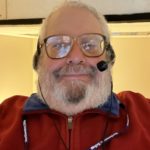
Session Description: This “booth camp style” workshop will cover all aspects of a complex deposition heard in the United States or abroad through practical exercises in small groups. We will look at general principles such as preparation, credentials, and competitive advantages over other interpreters, to the analysis of all stages of a deposition, its best practices and work conditions. There will be advanced exercises based on a case study provided by the presenter, including complex legal and technical situations, communication with foreign attorneys and high-profile deponents. We will learn the differences between in-person, distance, and hybrid depositions, team interpreting, check interpreters, legal objections, and many other concepts and situations. By the end of the workshop all participants will be full of knowledge, armed with strategies to enter the world of Fortune 500 companies, and escape from the world of car and labor injury small claims depositions. This workshop will be in Spanish for advanced interpreters and those ready for a good challenge.
Objectives: Those interpreters attending this advanced workshop will learn how to properly prepare for a high-profile, complex deposition, that could involve International Law, by understanding the purpose, importance, and mechanics of a deposition, how to communicate with the client and other participants, how and what to interpret, researching and learning the facts, the parties, and the litigants and expert witnesses’ backgrounds. The presenter will discuss this process step by step, and then all participants will work in small groups, interpreting and reviewing an exercise based on a case study provided by the instructor. After the workshop, participants will assess on their own their current skills and identify what they need to do to improve, in order to provide the service top lawyers expect from a successful interpreter. Every interpreter attending the workshop will leave a better professional.
Tony Rosado is a conference and court/legal interpreter with over 35 years of experience in interpreting all over the world. An attorney from Escuela Libre de Derecho in Mexico City, he has worked internationally as a conference interpreter, and has interpreted for high profile conferences, court proceedings, sports events, and TV broadcasts, including presidential debates and political conventions. He has worked with many top-level politicians, celebrities, athletes, and entrepreneurs. The author of two books on court interpreting, he is a visiting professor at various universities in the U.S. and overseas. He is also a well-known conference presenter, a United States Department of State independent contractor at the conference-level, a court interpreter certified by the Administrative Office of the U.S. Courts and several States, as well as the current chair of AIIC-USA Regional Bureau, chair of the Ethics Committee of IAPTI, and the author of the popular blog, The Professional Interpreter.
REMOVAL PROCEEDINGS... A WORLD APART [Sponsored by SOSi]
Friday, June 2, 9:00 AM – NOON EDT
Presenters: Francesca Samuel and Marilyn Lovo
Language: Language Neutral
Level: All Levels
Attendee rates:
Early Bird Rate: $110 members, $150 non-members;
After April 17: $135 members, $175 non-members;
After May 22: $185 members, $225 non-members


Session Description: This lively presentation includes immigration court terminology as well as information regarding the different immigration court hearing settings, for example, cancellation of removal, adjustments, asylum, voluntary departure, removal vs. deportation, citizenship claims, etc., and an advocacy component to this is the company’s experience in advocating for equal justice and how the interpreter helps to make a legal right a reality by facilitating immigrants as they access and navigate our justice system, overcome barriers, and access justice. We will look at the different scenarios, the role of EOIR (Executive Office of Immigration Review), the interpreter’s role in this environment, and how it differs from other judicial circuits compared to Federal and State interpreter requirements, court protocol, etc. Additionally, we’ll explore language differences or similarities of standard legal terminology vs. immigration jargon and the importance of cultural awareness in translation. The session will also include information about some of the dos and don’ts associated with the preparation and translation of documents for purposes of immigration. Participants will receive information regarding monolingual (English) and bilingual (Spa<>Eng) glossaries of terms associated with immigration as well as a list of the definitions of the different sections of the law for EOIR (Executive Office of Immigration Review).
Francesca Samuel is a freelance interpreter/translator and founder and president of A la Carte Translations, a web-based translation business. She has been a member of NAJIT and ATA since 1999. Francesca is a Pima College Translation and Interpreting Program graduate with 22+ years of experience as an immigration court contract interpreter and approximately 30 years of experience as a translator. Francesca is an avid volunteer and passionate about the profession. She has presented on immigration, business management, scam prevention, and social media at annual FIT, NAJIT, CFI, ATA, and ATI conferences. She served as administrator of the Spanish Language Division of the American Translators Assoc. from 2012-2016 and president of Arizona Translators and Interpreters (ATI) during the same period. Currently, Francesca serves on several committees and boards, which include president of Arizona Translators and Interpreters, chair of the Hospitality/Public Relations committee and member of the Professional Development of the ATA Spanish Division, chair of the Training and Education committee of NAJIT, co-chair of the conference planning committee and member of its Social Media committee.
Marilyn Lovo is a national expert on language access. She is a Senior Language Access Manager at Ayuda, a nonprofit organization that provides legal, social, and language access services to low-income immigrants in the DC Metropolitan area. She supervises a team of Coordinators responsible for administering publicly funded interpreter banks, ensuring that nonprofits in the District and surrounding jurisdictions can serve all clients, regardless of the languages they use to communicate. She recruits and selects interpreters to work in community, legal, and victim services settings. She designs, coordinates, and delivers training for professionals on best practices regarding interpretating, language access, and using Ayuda’s interpreter banks. She arranges interpretation and translation for 100 nonprofit organizations throughout Washington, DC, Maryland, and Virginia. Marilyn has nearly nine years of experience in the language access field, advocating for limited-English and Deaf and Hard of Hearing clients, and has delivered presentations at numerous local and national conferences.
WORDFAST PRO FOR BEGINNERS
Friday, June 2, 9:00 AM – NOON EDT
Presenters: John Di Rico
Language: Language Neutral
Level: Beginner
Attendee rates:
Early Bird Rate: $110 members, $150 non-members;
After April 17: $135 members, $175 non-members;
After May 22: $185 members, $225 non-members

Session Description: This training will be devoted to setting up and using the general features of Wordfast Pro. A workflow approach from translation quoting to delivery will be used, and practical exercises will focus on creating and using glossaries and translation memories, including converting PDF files so they can be imported and translated with Wordfast. Time permitting, we’ll learn how to create a translation memory from past translations using the Wordfast alignment tools.
NOTE: Participants will be contacted prior to the workshop with workshop primer instructions. This will help you download the software, practice with it a bit, and be ready to go when you arrive at the workshop! Registered attendees will receive a 25% discount to purchase a license.
Objectives: By the end of this workshop, attendees will be able to use Wordfast Pro to create a translation project; create a translation memory (TM); create a glossary; import TMs and glossaries; analyze a file; translate, edit, and proofread PDF and Microsoft Word documents; integrate machine translation; perform an automated quality control assessment; and create a translation memory using an alignment tool.
John Di Rico began translating in 2005 and specializes in legal, financial, and marketing translation from French to English. He currently works as the Sales and Marketing Manager for Wordfast and runs a small translation business—ApexTra—in France. He is a sworn translator and interpreter for the French courts (traducteur-interprète assermenté), member of the French translation professional association (Société Française des Traducteurs). He has an MA in Translation and Localization Management from the Middlebury Institute of International Studies at Monterey (MIIS). John is a certified trainer for adult education and has been offering professional training for translators since 2006. He has taught more than 600 translators how to use CAT tools, how to manage their time, and how to manage translation projects. John is currently teaching project management for the online Master in Technical Communication and Localization (TCLoc) and Master in Multilingual Web Communication programs at the University of Strasbourg.
Friday, June 2nd: Afternoon Workshops
2:00 PM – 5:00 PM EDT
A minimum participant threshold is required for all pre-conference workshops. If a session you choose is cancelled, you will have the option of choosing an alternate session or a full refund. These sessions have limited capacity. Reserve your spot early!
SIMUL IS SIMUL. OR IS IT? [ETHICS]
Friday, June 3, 2:00 PM – 5:00 PM EDT
Presenter: Katty Kauffman
Language: Language Neutral
Level: Advanced
Attendee rates:
Early Bird Rate: $110 members, $150 non-members;
After April 17: $135 members, $175 non-members;
After May 22: $185 members, $225 non-members

Session Description: As court interpreters we often work in the simultaneous mode. But do our skills in that mode translate smoothly into other settings? In this hands-on session, we’ll discuss the practical and ethical considerations involved in working in the simultaneous mode in legal settings, seminars and conferences and practice the skills needed to succeed in those unique contexts. In addition, as a group we’ll address the question of quality and how listener perception may influence and inform our performance in settings beyond the legal realm. In break-out groups, we’ll look at real-life scenarios and discuss best practices. Through practical exercises, participants will hone their simultaneous skill set and ability to adjust and adapt to different circumstances and expectations.
Participants will need to bring an internet-equipped device (cell phone or computer) to access audio, and compatible earbuds or headphones (preferably noise cancelling).
Objectives: Participants will learn to differentiate between the different contexts in which simultaneous interpreting is used (court, seminar, conference, etc.), the unique skill set required for each, and the ethical and practical considerations involved in deciding which assignments to accept. Attendees will gain an understanding of the nuances involved in each setting and how those impact expectations for interpreter performance through practical, hands-on exercises and group discussion.
Katty Kauffman is a seasoned conference and court interpreter, a member of the International Association of Conference Interpreters (AIIC) and TAALS and an instructor at York University’s graduate school (Glendon MCI). Trained in Chile and the United States, her extensive conference experience includes presidential summits, general assemblies of international organizations, and countless events for the private sector. She regularly provides services in person and online to the U.S. Department of State, the OAS and ECLAC, among others. In the judicial field, in addition to her work as a freelancer in New York, Miami and the Washington, DC metro area, she has served on staff at the U.S. District Court for the Southern District of Florida.
SETTING AND LEVERAGING INTERNATIONAL STANDARDS FOR COURT INTERPRETING
Friday, June 2, 2:00 PM – 5:00 PM EDT
Presenters: Aimee Benavides and Christopher Mellinger, PhD.
Language: Language Neutral
Level: All Levels
Attendee rates:
Early Bird Rate: $110 members, $150 non-members;
After April 17: $135 members, $175 non-members;
After May 22: $185 members, $225 non-members

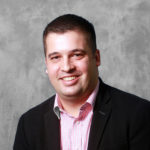
Session Description: Professional organizations play a key role in developing best practices and standards in language services provided in legal settings. White papers, standards of practice, and codes of ethics are shaped by members of these groups, and they are often cited as key references in courts when issues arise. In addition, international standards such as ASTM and ISO standards have been developed via consensus-building with a range of stakeholders in an effort to guide decision makers and address broad questions of working conditions, professional conduct, and best practices. These standards extend beyond the courtroom into other legal settings, enabling more interpreters to benefit from their use.
This presentation provides an overview of international standards on translation and interpreting, focusing specifically on ASTM standards and their applicability to interpreting in court and in legal contexts. The presentation describes the overarching process of developing international standards, articulates how these standards can be used by court interpreters and administrators to support the provision of language access, and identifies ways in which standards can bolster initiatives related to the quality of language services. Suggestions are provided on how interpreters can leverage international standards to enhance the profession.
Objectives: By the end of the session, participants will be able to identify key international standards related to best practices in language services and describe their scope and applicability to court interpreting. They will be able to outline the process of developing international standards, identify key stakeholders, describe their relationship to codes of ethics and white papers, and implement standards in their daily work as court interpreters. Finally, they will learn how to access key standards relevant to their professional activities in legal settings.
Aimee Benavides is a federally certified and California court certified Spanish interpreter with over 20 years of experience. She is a former chair of NAJIT, having served on the board from 2017–2022. In addition to having worked extensively in court, she specializes in technical agricultural conferences and training workshops, focus groups that require simultaneous interpreting into English and educational interpreting. She is currently the co-chair of the executive committee for ASTM F43 Language Products and Services and helped to draft the recent revision to the interpreting standard. She is currently leading the drafting committee on a standard guide for remote interpreting. She has presented various webinars and educational sessions independently, for NAJIT, ATA, as well as for TerpSummit in January 2023.
Christopher D. Mellinger is an associate professor of Spanish Interpreting and Translation Studies at the University of North Carolina at Charlotte. Dr. Mellinger received his Ph.D. in Translation Studies and M.A. in Translation (Spanish) from Kent State University. He also holds certificates in Spanish-English interpreting as well as translation and localization management from Wake Forest University. He is the co-editor of the journal, Translation and Interpreting Studies (John Benjamins), co-editor of Translating Texts: An Introductory Coursebook on Translation (Routledge, 2020), and co-author of Quantitative Research Methods in Translation and Interpreting Studies. He has been involved in ASTM to revise the language interpreting standard (F2089) and is collaborating on a proposal for a new standard on remote interpreting.
CONSEJOS DE PALABRAS MAYORES
Friday, June 2, 2:00 PM – 5:00 PM EDT
Presenters: Antonio Martín, Alberto Gómez-Font, Xosé Castro Roig
Language: Spanish
Level: All Levels
Attendee rates:
Early Bird Rate: $110 members, $150 non-members;
After April 17: $135 members, $175 non-members;
After May 22: $185 members, $225 non-members

Session Description: The session will be in Spanish, but doubts and questions can be answered in English. The three (of the four) members of the group Palabras Mayores offer you three sessions. The first one, in charge of the philologist Alberto Gómez Font, will deal with what is considered “correct Spanish”, in order to know which manuals and resources can be used to solve doubts. The second, by the translator Xosé Castro, will discover digital resources to increase the productivity of the interpreter’s daily work. And the last one, by the communicator Antonio Martín, will present the methodology of clear language in legal and administrative texts, to offer a useful resource in daily work and a new job option.
Objectives: Above all, attendees will learn how to resolve Spanish language doubts more quickly, easily, safely and efficiently. Secondly, they will be able to acquire the digital skills to solve problems related to specialized terminology, as well as other resources that will help them to increase their productivity, and therefore, be more competitive. And finally, they will learn the techniques of clear language, both to use them in their daily work, as well as to value them as another job skill to offer to their customers.
Since 1989, Xosé Castro Roig has been working as a freelance English translator and proofreader. He has participated as coordinator, translator or proofreader in dozens of software translations. He has translated and adapted advertising material, multimedia and educational videos for the U.S. Hispanic population and for the Spanish-speaking market in general. He has also translated a large number of series and movies for film and television, both for dubbing and subtitling, especially for the European market. He is an advisor to the Centro Virtual Cervantes of the Instituto Cervantes and an active member of the ATA and Asetrad. He was co-editor of the glossary of computer terms in the style guide of the newspaper El País; he is the creator and moderator of TRAG, the largest discussion list for Spanish-speaking audiovisual translators, and is a member of the editorial board of Panacea, the medical language magazine.
Albert Gómez-Font is a former director of the Instituto Cervantes in Rabat (Morocco) and was General Coordinator of the Fundación del Español Urgente (Fundéu) until 2012. He was also a corresponding member of the North American Academy of the Spanish Language and a stylist in the Department of Urgent Spanish of the Agencia EFE (Madrid) from its foundation in 1980 until its transformation into Fundéu BBVA in 2005. He has been a professor, since 1990, for the courses of modernization of administrative language, organized by the Ministry of Public Administration (MAP) of Spain. He is a professor, since 2001, in the “Agency Journalism” master’s degree courses organized by the EFE Agency. He is also the author of more than 20 books related to the use of language, the creator of the Apuntes forum and an organizer and participant in many international congresses on language.
Antonio Martín graduated in Hispanic Philology at UCM. In 1997 he founded CÁLAMO&CRAN, the center for professional applications of language and publishing. He is a member of the quartet PALABRAS MAYORES, a member of the editorial committee of ARCHILETRAS, and one of the organizers of the ENCLARO meetings. He is co-author of El libro rojo de C&C (C&C, Madrid, 2013), 199 recetas infalibles para expresarse bien (Vox, Barcelona, 2015), Dilo bien y dilo claro (Larousse, Barcelona, 2017), and author of La mano invisible (CSIC, Madrid, 2019). He has directed the PUBLISHNEWS media since 2015, a daily reference in the Spanish publishing world. From 2005 to 2015 he chaired the professional association of proofreaders that he founded, UniCo. In 2018 he contributed to the creation of the first professional association of proofreaders in the United States, SEA. In 2007 he was recognized as an honorary member of La Casa del Corrector, of the Litterae Foundation. In June 2022 he was appointed PLAIN’s ambassador in Spain.
THE POETRY OF LEGAL LANGUAGE
Friday, June 2, 2:00 PM – 5:00 PM EDT
Presenters: Janis Palma
Language: Language Neutral
Level: Advanced
Attendee rates:
Early Bird Rate: $110 members, $150 non-members;
After April 17: $135 members, $175 non-members;
After May 22: $185 members, $225 non-members

Session Description: We often think of legal language as frozen and unyielding, difficult to decipher and even more difficult to find proper equivalent concepts in other languages. During this workshop, participants will learn how to use a different lens to look at legal language: the lens of rhetorical devices. We will analyze how metaphors, alliterations, metonymy and other figures of speech form an integral part of legal discourse, and in so doing sharpen those analytical skills normally applied to extract meaning from everything heard inside and outside of a courtroom. Looking at the poetic side of legal language will help participants enhance their critical thinking skills and their overall performance.
Objectives: At the end of this workshop participants will be able to recognize the most common rhetorical devices found in legal discourse. They will learn how to analyze figurative language in legal contexts, how to differentiate and extrapolate layers of meaning and, within this pragmatic context, apply interpreting strategies that make it easier for them to understand legal discourse in U.S. courtrooms and easier to convey its meaning in a foreign language.
Janis Palma is an English-Spanish interpreter and translator, certified by the federal courts in 1981, certified by NAJIT as an interpreter and translator in 2004, and licensed by the State of Texas as a master court interpreter as of 2017. She holds a B.A. from the University of Texas at Austin and an M.A. from the Centro de Estudios Avanzados de Puerto y el Caribe in San Juan. She is a NAJIT Life Member since 2006, was a Board Member between 2020 and 2022, and chair of the board for the 2021-22 term. Ms. Palma has been teaching and training judiciary interpreters since 1986 and has written extensively on subjects related to judiciary interpreting. She is now working towards a master’s in Legal Studies (MLS) at Arizona State University.
TIPS AND TRICKS FOR ACCENT REDUCTION
Friday, June 2, 2:00 PM – 5:00 PM EDT
Presenters: Nora Díaz
Language: Language Neutral
Level: All Levels
Attendee rates:
Early Bird Rate: $110 members, $150 non-members;
After April 17: $135 members, $175 non-members;
After May 22: $185 members, $225 non-members
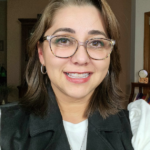
Session Description: How can non-native English speakers improve their accent? Simple observation and imitation is not enough, but an understanding of basic English phonetics and phonology principles go a long way to enhance both listening comprehension and speaking performance. This hands-on workshop combines theory and practice to help achieve accent reduction goals efficiently and systematically.
Objectives: In this workshop, attendees will learn and practice the basics of phonetics and phonology for accent reduction. The topics to be covered include the English vowel and consonant system, word and sentence stress, and their practical application for improved listening comprehension and speaking performance.
Nora Díaz is an English-Spanish translator and conference interpreter who enjoys using technology and finding ways to increase productivity, which combines with her love of teaching and has led her to share what she has learned through a blog, articles, webinars and workshops. Nora is a certified RWS trainer, currently serves on the board of the Organización Mexicana de Traductores and is the chair of the American Translators Association Professional Development Committee. She is also one of the co-organizers of the Innovation in Translation Summit and the Innovation in Interpreting Summit. She has recently co-authored a book called The Translator’s Tool Box.
COURT TOUR
Friday, June 2, 1:00 PM – 4:30 PM PDT
Court Address: Lloyd D. George Federal Building, 333 Las Vegas Blvd. South, Las Vegas, NV. 89101
Meet: 1:00 PM at the conference registration desk
Tour Time: 2:00 PM to 4:00 PM
Ticket Cost = $20
Session Description: Attendees will enjoy a 2-hour tour of the Lloyd D. George Federal Building located eight miles away from the conference hotel. Attendees will be treated to a conversation with a local judge. This tour is limited to 15 attendees. NAJIT will provide transportation to and from the conference hotel, provided attendees meet at the designated area. Instructions will be emailed to attendees before the conference. Please allow a minimum of 3-hours for the tour and travel time.
Pre-Conference Workshops
Pre-conference workshops are three and six-hour courses designed to help language professionals enhance their skills and knowledge on a particular topic.
Additional registration is required. Pre-conference workshops are available as an add-on item to the main conference or can be registered for individually.
Space is limited! All workshops will have limited seating to ensure an optimal learning experience.
Earn continuing education units (CEUs). All workshops will be submitted to receive continuing education credit. Review the conference CEU page for complete details.
EVENT SCHEDULE
EDUCATIONAL SESSIONS
SCHOLARSHIP PROGRAM
EXHIBITORS
SPONSORS
ADVERTISING
HOTEL
REGISTRATION INFORMATION
Friday, June 3rd: Full Day Workshop
9:00 AM – 5:00 PM EDT
*The workshop will break for a 2-hour lunch from Noon to 2 PM.
A minimum participant threshold is required for all pre-conference workshops. If a session you choose is cancelled, you will have the option of choosing an alternate session or a full refund. These sessions have limited capacity. Reserve your spot early!
ADVANCED CONSECUTIVE SKILLS-BUILDING **SOLD OUT**
Presenter: Athena Matilsky
Language: Language Neutral
Level: Advanced

Friday, June 3, 9:00 AM – 5:00 PM EDT
In-person attendee rates:
Early Bird Rate: $200 members, $280 non-members;
After April 22: $300 members, $380 non-members;
After May 23: $400 members, $480 non-members
Session Description: This workshop is designed for interpreters to take their consecutive skills to the next level. Drawing on the field of conference interpreting, participants will be pushed to step outside their comfort zone and attempt longer consecutive passages. They will then perform a series of hands-on practices with careful output analysis. Participants will learn to maximize different tricks of the trade in order to improve their renditions. Topics covered will include active listening, memory optimization and skillful note-taking.
Objectives: Participants will improve their consecutive interpretation skills. They will maximize their ability to actively listen, take notes, and commit longer passages to memory. Participants will leave the workshop better-equipped to perform consecutive interpretation.
Athena Matilsky holds a BA in Spanish interpreting and translation from Rutgers University and a Master’s Degree in Conference Interpreting from Glendon College. She is a Federally Certified Court Interpreter (Spn<>Eng), a Certified Healthcare Interpreter (Spn<>Eng) and an Approved Court Interpreter (Frn<>Eng). She was editor-in-chief of Proteus in 2015 and she served as a staff interpreter for the NJ judiciary from 2013-2016. She currently owns Athena Sky Interpreting, where she coaches students on interpreting technique. When she is not teaching and interpreting, you may find her practicing Acroyoga or studying French. Website: https://athenaskyinterpreting.com/.
Friday, June 3rd: Morning Workshops
9:00 AM – NOON EDT
A minimum participant threshold is required for all pre-conference workshops. If a session you choose is cancelled, you will have the option of choosing an alternate session or a full refund. These sessions have limited capacity. Reserve your spot early!
INTERPRETING AMERICAN ENGLISH PROFANITY
Presenter: Javier Castillo
Language: Language Neutral
Level: All Levels

Friday, June 3, 9:00 AM – NOON EDT
In-person attendee rates:
Early Bird Rate: $100 members, $140 non-members;
After April 22: $150 members, $190 non-members;
After May 23: $200 members, $240 non-members
Session Description: In this 3-hour workshop, participants will explore the usage of profanity in American English and will review interpreter ethics and protocol regarding register. Participants will learn the functions and categories of profanity and learn to search for context and intent. Participants will learn strategies for finding equivalents in their working languages and will begin developing initial glossaries.
Objectives: Participants will leave this session with a better understanding of American English profanity and will have a foundation to find appropriate solutions when interpreting into and from English and their other working language(s).
Javier Castillo is president of Castillo Language Services, Inc. in Greenville, NC. He is an interpreter, translator, consultant and internationally recognized speaker. He is a Federally Certified Court Interpreter, NC AOC certified court interpreter, a Certified Medical Interpreter, (CCHI) and contract interpreter for the U.S. Department of State and routinely interprets for international delegations and high-level speakers across the United States and abroad. Javier is a frequent speaker and trainer at national and international conferences. He is the President of the Carolina Association of Translators and Interpreters (CATI), a director on the board of the National Association of Judiciary Interpreters and Translators (NAJIT) and Head of the U.S. Chapter of the International Association of Professional Interpreters and Translators (IAPTI), and an active member of the American Translator’s Association.
ANALYZE THIS: ANALYZE, PREPARE & INTERPRET
Presenters: Agustín Servín de la Mora and James Plunkett III
Language: Language Neutral
Level: Intermediate / Advanced
Friday, June 3, 9:00 AM – NOON EDT


In-person attendee rates:
Early Bird Rate: $100 members, $140 non-members;
After April 22: $150 members, $190 non-members;
After May 23: $200 members, $240 non-members
Session Description: Join Agustín de la Mora and James Plunkett for a highly interactive, skill-building workshop for the simultaneous mode! Designed for intermediate to advanced skill levels, this presentation takes a practical approach to preparation and improvement through the analysis of real court material and detailed self-evaluation exercises using discourse analysis as a frame of reference. Be sure to bring a recording device and headsets. Don’t miss this chance to apply the interpreting theories that continue to make DE LA MORA Institute a nationally recognized name in interpreter education.
Objectives: At the end of this training, participants will attain an enhanced level of understanding and processing of legal and lay speech in court settings, with which they will produce more accurate, complete, and faithful renditions in the simultaneous mode. To achieve the goal, participants will improve understanding of the speaker’s speech/discourse/message and purpose in a legal setting, analyze the quality of the message and the speaker’s intentions and learn three/four steps to analyze real, legal speech and prepare the translated rendition.
Agustín Servin de la Mora is the President of DE LA MORA Interpreter Training. He was born and raised in Mexico City, Mexico, and has been a professional interpreter for 30 years, both as a freelance and a staff interpreter. He is one of the supervisor raters for the National Center for State Courts and has been a lead rater for the federal and consortium oral exams for court interpreters. He was the lead interpreter for the Ninth Judicial Circuit for over a decade, and served as a member of the Project Advisory Committee responsible for the creation of the National Standards for Healthcare Interpreter Training Programs for the NCIHC. He was a member of the Florida Court Interpreter Certification Board and a voting member of the Technical Committee of the National Consortium for Interpreter Certification. He is a state and federally certified court interpreter, as well as a certified medical interpreter. He has been a consultant for the National Center for State Courts for 20 years.
James Plunkett III is a nationally-known interpreter instructor and trainer of trainers. He also trains new judges and court staff on how to work with court interpreters. He is certified by the AOUSC as a Spanish and English court interpreter. He is a rater for a national credentialing program for interpreters. He has worked as a court interpreter for the 13th Judicial Circuit in Florida and as the Coordinator of Interpreting Services and Language Access Program for the District of Columbia Courts. He is staff interpreter of the U.S. District Court, based in Tampa, FL. He holds a BA degree in General Social Studies from Providence College. He was raised in Lima, Peru. He also communicates in Portuguese, some French and basic Mandarin.
WEBEX SIMULTANEOUS INTERPRETATION **SOLD OUT**
VIRTUAL PROGRAM: AVAILABLE TO BOTH IN-PERSON AND REMOTE ATTENDEES
**Note for in-person attendees: The presenter will be delivering the session remotely.
Bring a laptop if you wish to participate in the practice activity. **
Presenter: Maha El-Metwally
Language: Language Neutral
Level: Advanced

Friday, June 3, 9:00 AM – NOON EDT
In-person attendee rates:
Early Bird Rate: $100 members, $140 non-members;
After April 22: $150 members, $190 non-members;
After May 23: $200 members, $240 non-members
Virtual attendee rates:
Early Bird Rate: $65 members, $95 non-members;
After April 22: $85 members, $115 non-members;
After May 23: $135 members, $165 non-members
Session Description: Webex has recently introduced a long-awaited new feature: simultaneous interpretation. In this workshop, the trainer will explain what is needed to get this feature up and running. There will be a practical part where participants will test-drive the simultaneous interpretation feature with a booth mate.
Objectives: In this training the participants will learn what is needed to add this feature, how to set it up and how it works. They will also have hands-on experience with this feature.
Maha El-Metwally is a conference interpreter in the Arabic booth. She works for a wide range of international organizations, including the European Institutions and the United Nations. She is a member of the International Association of Conference Interpreters (AIIC), the Chartered Institute of Linguists (CIoL) and the American Translators Association (ATA). She is also a Fellow of the Institute of Translation and Interpreting (ITI). She served on the ITI Board member and Membership Committee for 6 and 9 years respectively. Maha has an MA in interpreter training from the University of Geneva. She is associated with a number of universities both in the UK and abroad where she contributes to the curriculum. She is passionate about technology in the field of interpreting and offers courses on the subject internationally both in person and remotely.
Friday, June 3rd: Afternoon Workshops
2:00 PM – 5:00 PM EDT
A minimum participant threshold is required for all pre-conference workshops. If a session you choose is cancelled, you will have the option of choosing an alternate session or a full refund. These sessions have limited capacity. Reserve your spot early!
SIGHT FOR SIMUL **CANCELED**
Presenter: Katty Kauffman
Language: Language Neutral
Level: Intermediate / Advanced

Friday, June 3, 2:00 PM – 5:00 PM EDT
In-person attendee rates:
Early Bird Rate: $100 members, $140 non-members;
After April 22: $150 members, $190 non-members;
After May 23: $200 members, $240 non-members
Session Description: We’ve all been there. An attorney or a conference delegate walks in, comes over, hands us a document (a speech, a proffer) and says, “I tend to read very quickly so I brought you a copy.” We thank the speaker, skim through it, and make some notes. What happens next is key. Do you put it aside, close your eyes and just focus on the spoken words? Or do you read along, interpreting as you go and adjusting to additions and deletions on the fly? If you are in the former group, this session is for you! Attend and learn key techniques to translate your sight reading skills into the simultaneous mode. Come prepared to practice.
Objectives: Participants will learn how to skim a document to identify key elements in advance. They will also learn how to listen and read at the same time, then how to listen, read AND interpret at the same time, and how to adjust to changes in the text. Finally, they will know how to help their partner when working from a prepared text.
Katty Kauffman is a seasoned conference and court interpreter, a member of the International Association of Conference Interpreters (AIIC) and TAALS and an instructor at York University’s graduate school (Glendon MCI). Trained in Chile and the United States, her extensive conference experience includes presidential summits, general assemblies of international organizations, and countless events for the private sector. She regularly provides services in person and, more recently, online, to the U.S. Department of State, the OAS and ECLAC, among others. In the judicial field, in addition to her work as a freelancer in Miami and the Washington, DC metro area, she has served on staff at the U.S. District Court for the Southern District of Florida. Her language combination is ES/EN: A; PT: C.
ANATOMY OF A DEPOSITION: ADVANCED TOPICS [ETHICS]
Presenter: Judy Jenner
Language: Language Neutral
Level: Intermediate

Friday, June 3, 2:30 PM – 5:30 PM EDT **NOTE: This workshops start time is now 2:30 PM, not 2:00 PM**
In-person attendee rates:
Early Bird Rate: $100 members, $140 non-members;
After April 22: $150 members, $190 non-members;
After May 23: $200 members, $240 non-members
Session Description: This pre-conference workshop is part two of last year’s workshop and builds on it. Deposition basics will only be reviewed briefly.
As some court systems have reduced the rates for judiciary interpreters, court interpreters look for assignments outside the court system. There are plenty of opportunities available at depositions, which are typically held at law offices. Unfortunately, there is little training for interpreters in depositions, and this workshop will provide a detailed, in-depth, advanced overview of ethical conundrums, the role of check interpreters, best practices, fixing mistakes, special situations, sample deponent responses, high-level depositions, stand-by interpreting, and more.
Objectives: Attendees will learn about the finer points of depositions, including how to handle challenging situations, how to deal with standby and check interpreting, how to avoid conflicts of ethics, and how to make sure law firm clients come back to retain the interpreter again.
Judy Jenner is a Spanish and German business and legal translator and a federally court-certified Spanish interpreter. She has an MBA in marketing and runs her boutique translation and interpreting business, Twin Translations, with her twin sister Dagmar. She was born in Austria and grew up in Mexico City. She’s a former in-house translation department manager and serves as one of the spokespersons for the American Translators Association. She writes the blog Translation Times, pens the “Entrepreneurial Linguist” column for The ATA Chronicle, and is a frequent conference speaker, including at recent events in Czech Republic, Brazil, Sweden, Norway, etc. She is the co-author of The Entrepreneurial Linguist: The Business-School Approach to Freelance Translation. She teaches translation and interpreting at UC-San Diego and at UNLV (University of Nevada, Las Vegas).
IMMIGRATION LAW AND TERMINOLOGY FOR INTERPRETERS
VIRTUAL PROGRAM: AVAILABLE TO BOTH IN-PERSON AND REMOTE ATTENDEES
**Note for attendees: The presenters will be delivering the presentation in-person.**
Presenters: Tamber Hilton, Esq. and Andrew (Drew) Bahr, Esq.
Language: English with Spanish Examples
Level: All Levels
Friday, June 3, 2:00 PM – 5:00 PM EDT


In-person attendee rates:
Early Bird Rate: $100 members, $140 non-members;
After April 22: $150 members, $190 non-members;
After May 23: $200 members, $240 non-members
Virtual attendee rates:
Early Bird Rate: $65 members, $95 non-members;
After April 22: $85 members, $115 non-members;
After May 23: $135 members, $165 non-members
This pre-conference workshop is being sponsored by SOSi. SOSi is providing a $60 subsidy off the registration rate for in person attendees and a $35 subsidy for virtual attendees. You must use the appropriate coupon code from the list below to receive the subsidy. The subsidy is available until funds are exhausted.
In-person attendee coupon codes (case sensitive)
Members: 2022SOSIM
Nonmembers: 2022SOSINM
Students & Life Members: 2022SOSISL
Virtual attendee coupon codes (case sensitive)
Members: 2022SOSIVM
Nonmembers: 2022SOSIVNM
“With only a small degree of hyperbole, the immigration laws have been termed second only to the Internal Revenue Code in complexity. A lawyer is often the only person who could thread the labyrinth.” Baltazar-Alcazar v. I.N.S., 386 F.3d 940, 948 (9th Cir. 2004).
Immigration is a vast and complex field of law, and nearly all interpreters have provided interpretation related to some aspect of an immigration claim. Have you ever wondered how a case ends up in immigration court? Or how it ends up in federal court from either USCIS or EOIR? Or have you noticed that immigration practitioners tend to use the same terms that you hear in state court, but seem to mean something different when immigration attorneys and judges use them? Come join Tamber Hilton and Drew Bahr, two practicing immigration attorneys, that are also Spanish interpreters, offering this introductory session on immigration law and terminology. This presentation will answer all of these questions and more to help attendees feel confident and prepared to work in an immigration setting, particularly in immigration court. Because of the specialized nature of immigration law, the fast pace of court proceedings and the daily frequency with which interpreters work adjudicative hearings rich in fact and law, it is essential for interpreters to understand the law to make informed terminology choices and keep up with the pace of proceedings. In this session, attendees will learn how the U.S. immigration system is structured and the contours of its relationship with the state and federal justice systems. They will also learn about the most common types of immigration remedies that interpreters may encounter in both immigration court and at USCIS, with a focus on understanding what it is that practitioners are arguing in each type of case, so that attendees can better formulate their renditions of argument and predict what might come next in a given proceeding.
Objectives: Participants will be able to articulate the different agencies that make up the federal immigration system and understand the role that state and federal courts can play in immigration claims. They will be able to describe the most common immigration remedies and differentiate between remedies that are available exclusively as a defense to removal, exclusively affirmatively, and those that may be available in both contexts. Finally, they will learn to evaluate terminology options for different concepts in immigration law and assess the legal validity of these options, using statutes where relevant.
Tamber Hilton is a practicing Spanish court interpreter and immigration attorney based in Tucson, Arizona and Washington, D.C. She is federally certified and court certified in the state of Virginia. She has extensive experience as an interpreter for the Executive Office of Immigration Review (EOIR), state, and federal courts in the D.C. area and elsewhere. She was admitted to the Maryland bar in 2021, and has a small immigration practice focusing on humanitarian relief such as asylum, motions to reopen, SIJS, and others. She has a passion for immigration issues unique to border regions, and volunteers regularly at a migrant shelter in Tucson, Arizona. She loves to hike and explore the mountains and canyons of Tucson in her spare time.
Andrew (Drew) Bahr is a practicing immigration attorney focusing on removal defense and an experienced interpreting instructor. Before practicing law, Drew worked as an immigration court interpreter and freelanced for assignments at the Department of Homeland Security, Virginia and D.C. jails, federal jails and prisons, at white shoe firms in downtown Washington, D.C., at many non-profits, and for the Virginia Circuit Courts. Outside of work and teaching, Drew enjoys reading science fiction, playing table-top games, and trying new foods.
COURT TOUR
Court Address: 201 SE 6th St, Fort Lauderdale, FL 33301
Meet: 12:30 PM at the conference registration desk
Tour Time: 1:30 PM to 3:30 PM
Friday, June 3, 12:30 PM – 4:00 PM EDT
In-person attendee rate = $20
Session Description: Attendees will enjoy a 2-hour tour of the Seventeenth Judicial Circuit Courthouse located three miles away from the conference hotel. Judge Jose Izquierdo will join the tour and speak with attendees. There will also be an opportunity to observe Bond court, where interpreters can be found both in-person and remotely. This tour is limited to 20 attendees. NAJIT will provide transportation to and from the conference hotel, provided attendees meet at the designated area. Instructions will be emailed to attendees before the conference. Please allow a minimum of 3-hours for the tour and travel time.
Pre-Conference Workshops
Pre-conference workshops are three-hour courses designed to help language professionals enhance their skills and knowledge on a particular topic.
Additional registration is required. Pre-conference workshops are available as an add-on item to the main conference or can be registered for individually.
Space is limited! All workshops will have limited seating to ensure an optimal learning experience.
Earn continuing education units (CEUs). All workshops will be submitted to receive continuing education credit. Review the conference CEU page for complete details (coming late-April).
Saturday, June 5th: Morning Workshops
10:00 AM – 1:15 PM EDT
*A 15-minute break has been incorporated into the workshop.
A minimum participant threshold is required for all Friday workshops. If a session you choose is cancelled, you will have the option of choosing an alternate session or a full refund. These sessions have limited capacity. Reserve your spot early!
REMOTE SIMULTANEOUS INTERPRETING: HOW TO EXERCISE BEST PRACTICES IN A VIRTUAL ENVIRONMENT [ETHICS]
Presenters: Aimee Benavides, Tamber Hilton, Ernest, Niño-Murcia
Language: Language Neutral
Level: All Levels
Earn 3 hours of Continuing Education Credit
Saturday, June 5, 10:00 AM – 1:15 PM EDT
Early Bird Rate: $65 members, $95 non-members;
After May 14: $85 members, $115 non-members
Cancellation Policy: Refunds will not be issued after May 6
Session Description: This workshop will teach attendees how to better navigate the confusing territory of remote simultaneous interpretation. Team interpreting can be difficult but not impossible with the right tools and understanding of technical limitations. This session will prepare interpreters to be aware of ethical considerations and potential problems caused by the logistics employed by courts or other parties within the field of legal interpretation. Attendees will leave the session understanding how technology can be used to improve their rendition, protect their hearing, and enjoy a better professional experience. Special attention will be paid to the ethical problems that arise based on conditions that do not occur when working in person, but are common occurrences in virtual settings. Zoom will be the primary platform used for practice; however, additional platforms will also be discussed.
Objectives: This session will teach attendees the basic elements that all remote simultaneous platforms share as well as their key differences which affect the interpreter’s ability to work within the ethical bounds. Best practices have in the past focused on in-person hearings and court procedures, but as the pandemic has forced the world to interact virtually, special attention will be drawn to areas that deserve more attention. Court interpreting ethics and boundaries are pushed logistically into new territory by the many virtual setups employed by courts. Pitfalls and the strategies needed to overcome them will be shared.
Presenter Bios:
Aimee Benavides is a federally and CA court certified Spanish interpreter with over 19 years experience. In addition to having worked extensively in court, she specializes in technical agricultural conferences and training workshops, focus groups that require simultaneous interpreting into English, and educational interpreting. She has also innovated ways to connect phone lines into interpreting platforms as a way to overcome platform shortfalls and help interpreters avoid being stuck as the pinch point between LEPs and the courts. Tamber and Aimee are 2 of the 3 members of TEA Language Solution.
Tamber Hilton is a federally certified freelance Spanish court and community interpreter based in Washington, D.C. She is a tech and audio aficionado, with a passion for solving technical problems in virtual event management and for helping people look and sound their professional best, virtually. In addition to interpreting and experimenting with RSI technology, she is a licensed lead trainer for Cross Cultural Communications’ The Community Interpreter curriculum, and has been training and mentoring community interpreters since 2011. Tamber has led the technical team for several important events with several different language pairs, all working simultaneously. These experiences have shaped the teaching and tech support methodologies used by TEA Language Solutions which is a partnership between Tamber, Ernest Niño-Murcia, and Aimee Benavides.
Ernest Niño-Murcia is a freelance legal interpreter and translator based in Des Moines, Iowa. He received a B.A. in Anthro-Linguistics from Brown University. As a state and federally certified court interpreter, he has interpreted legal proceedings and prepared translations, transcriptions and expert witness reports/testimony for clients in the private and public sectors. He is a member of the Iowa Judicial Branch ́s Language Access in the Courts Committee. Outside of court, he has interpreted for public figures such as House Speaker Newt Gingrich and Senators Bernie Sanders and Elizabeth Warren. He worked with Iowa PBS providing live interpretation for broadcasts of Governor Kim Reynolds’ daily press briefings on the COVID-19 crisis. Additionally, Ernest is a Jeopardy! Champion (2012), whose greatest achievement on the show was beating an attorney to the buzzer to answer “co-defendant” in the “11 letter words” category.
CONFERENCE CONSECUTIVE FOR THE COURT INTERPRETER
Presenters: Athena Matilsky
Language: Language Neutral
Level: Intermediate / Advanced
Earn 3 hours of Continuing Education Credit
Saturday, June 5, 10:00 AM – 1:15 PM EDT
Early Bird Rate: $65 members, $95 non-members;
After May 14: $85 members, $115 non-members
Cancellation Policy: Refunds will not be issued after May 6
Session Description: In this workshop, participants will be introduced to the main principles of long consecutive for conference interpretation. We will discuss analysis of speeches and how to grasp complex ideas with minimal notes. Participants will try their hand at longer consecutive using various speeches. We will then discuss lessons that can be drawn in the courtroom context, and how to improve their consecutive skills in general. Topics will include active listening, visualization, analysis and note-taking. Participants will walk away with a broader understanding of the consecutive mode.
Objectives: Participants will enjoy a deep dive into long consecutive for conference interpreters, with practical takeaways for their own work.
Presenter bio: Athena Matilsky holds an MA in Conference Interpreting from Glendon College, York University, as well as a BA in Spanish Interpreting and Translation from Rutgers University. She is a Federally Certified Court Interpreter (Spn<>Eng), a Certified Healthcare Interpreter (Spn<>Eng) and an Approved Court Interpreter (Frn<>Eng). She was formerly editor-in-chief of Proteus (NAJIT’s academic publication), and she is currently on the NAJIT blog committee. She served as a staff interpreter for the NJ judiciary from 2013-2016. Now, she owns her own company, Athena Sky Interpreting, where she coaches students on interpreting technique. When she is not studying or teaching, you may find her studying French or practicing Acroyoga. Website: https://athenaskyinterpreting.com/Acroyoga.
HOW TO NEGOTIATE WITH YOUR CLIENTS, SELECT THE BEST ONES, AND INCLUDE THE CONDITIONS YOU WANT IN THE REMOTE AND IN-PERSON INTERPRETING SERVICES CONTRACT.
Presenter: Tony Rosado
Language: Language Neutral
Level: All Levels
Earn 3 hours of Continuing Education Credit*
Saturday, June 5, 10:00 AM – 1:15 PM EDT
Early Bird Rate: $65 members, $95 non-members;
After May 14: $85 members, $115 non-members
Cancellation Policy: Refunds will not be issued after May 6
*NOTE: This is a business session. Not all organizations will approve this for continuing education. Before attending, please verify the session was approved by your state.
Session Description: Professionals provide their services to their clients or patients directly. Interpreters are no exception. An important step towards recognition of the profession is the ability to procure and keep clients that see, treat, and value interpreters as members of a profession. During the workshop, interpreters will learn how to identify potential clients who already exist in their personal environment and they have not noticed. Attendees will see how they can retain their best clients by turning them into happy and appreciative individuals who respect the interpreter. Interpreters will learn negotiation techniques to persuade a client to provide the working conditions desired and needed by the interpreter, and to how include them in the written agreement. Everything from fees to expenses, interpreting equipment to tech support, comfortable travel to Per Diem, payment conditions, default penalties, and remote interpreting will be discussed. Participants will learn what to include in their service agreements, and how to thrive in the new remote interpreting market.
Objectives: Attendees will learn negotiation techniques to persuade clients to provide desired and needed working conditions. They will learn how to keep clients, and through active discussion and participation, they will contribute their ideas to gain clients’ trust. They will learn how to include in the written agreement the working conditions needed to provide a good service, protect themselves from liability, and get top fees. We will cover all: from fees to expenses, equipment to tech support, comfortable travel to per diem, payments, default penalties, and conditions in distance interpreting, learning how to include them in their agreements.
Presenter bio: Tony Rosado is a U.S. Department of State conference level independent contractor (highest classification in federal government), an Attorney at Law and Foreign Legal Consultant. He has over 30 years of experience practicing interpreting and teaching and is a guest professor, instructor and examiner in universities and colleges in all continents except Asia. An attorney from Escuela Libre de Derecho in Mexico City. He has worked internationally as a conference interpreter, and interpreted for high profile court proceedings, Olympic Games, and TV broadcasts, including presidential debates and political conventions. He has worked with many top level politicians, celebrities, athletes, and entrepreneurs. The author of two books on court interpreting, he is a visiting professor at various universities in the U.S. and overseas, a well known conference presenter, and the author of the popular blog, “The Professional Interpreter.”
Saturday, June 5th: Afternoon Workshops
2:15 PM – 5:30 PM EDT
*A 15-minute break has been incorporated into the workshop.
A minimum participant threshold is required for all Friday workshops. If a session you choose is cancelled, you will have the option of choosing an alternate session or a full refund. These sessions have limited capacity. Reserve your spot early!
ANATOMY OF A DEPOSITION [ETHICS]
Presenter: Judy Jenner
Language: Language Neutral
Level: All Levels
Earn 3 hours of Continuing Education Credit
Saturday, June 5, 2:15 pm-5:30 pm
Early Bird Rate: $65 members, $95 non-members;
After May 14: $85 members, $115 non-members
Cancellation Policy: Refunds will not be issued after May 6
Session Description: As some court systems have reduced the rates for judiciary interpreters, many court interpreters actively look for assignments outside the court system. There are plenty of opportunities available, and depositions, which are typically held at law offices, are one of these proceedings that oftentimes require interpreters. Little has been written about the role of interpreters in depositions, and this workshop will provide an overview of the structure of depositions, the parties, the objectives, the terminology, etc. Attendees will receive plenty of real-life advice on how to manage the flow of information, how to deal with difficult situations, and exactly what to expect during the course of the deposition. In addition, there will be an interactive session on ethics during depositions and a review of pesky situations and how to deal with them. This workshop will be held in English and is thus suitable for interpreters of all language, but some Spanish-language examples will be provided. The presenter is a federally certified court interpreter who has interpreted at more than 1,200 depositions. She is not a lawyer, but is married to one.
Objectives: Attendees will learn at which point in the judiciary process depositions are held, how they are structured, who the players are, what the interpreter should know to prepare, what to expect during the proceedings, how to handle the flow of information, how to deal with difficult situations, etc. In addition, they will gain a good understanding of specific depositions involving common cases, such as car accidents and personal injury claims. This workshop will be held in English with occasional Spanish-language examples, but is suited for interpreters of all languages.
Presenter bio: Judy Jenner is a Spanish and German business and legal translator and a federally court certified Spanish interpreter. She has an MBA in marketing and runs her boutique translation and interpreting business, Twin Translations, with her twin sister Dagmar. She was born in Austria and grew up in Mexico City. She’s a former in-house translation department manager and serves as one of the spokespersons for the American Translators Association. She writes the blog, “Translation Times,” pens the “Entrepreneurial Linguist” column for The ATA Chronicle, and is a frequent conference speaker, including at recent events in Czech Republic, Brazil, Sweden, Norway, etc. She is the co-author of The Entrepreneurial Linguist: The Business-School Approach to Freelance Translation. She teaches translation and interpreting at UC-San Diego and at UNLV (University of Nevada, Las Vegas).
ADVANCED SIMULTANEOUS WORKSHOP
Presenter: Agustín Servín de la Mora
Language: Language Neutral
Level: Advanced
Earn 3 hours of Continuing Education Credit
Saturday, June 5, 2:15 pm-5:30 pm
Early Bird Rate: $65 members, $95 non-members;
After May 14: $85 members, $115 non-members
Cancellation Policy: Refunds will not be issued after May 6
Session Description: Join Agustín de la Mora, president of DE LA MORA Institute of Interpretation, for a highly interactive skill-building workshop for the simultaneous mode! Designed for intermediate to advanced skill levels, this presentation takes a highly practical approach to improvement through detailed self-evaluation exercises. Be sure to HAVE A RECORDING DEVICE AND HEADSET AVAILABLE! You will not want to miss this chance to apply the interpreting theories that continue to make DE LA MORA a nationally recognized name in interpreter education.
Participants should have a recording device and a headset available.
Presenter bio: Agustín Servin de la Mora is the President of DE LA MORA Interpreter Training. He was born and raised in Mexico City, Mexico, and has been a professional interpreter for 30 years, both as a freelance and a staff interpreter. He is one of the supervisor raters for the National Center for State Courts and has been a lead rater for the federal and consortium oral exams for court interpreters. He was the lead interpreter for the Ninth Judicial Circuit for over a decade, and served as a member of the Project Advisory Committee responsible for the creation of the National Standards for Healthcare Interpreter Training Programs for the NCIHC. He was a member of the Florida Court Interpreter Certification Board and a voting member of the Technical Committee of the National Consortium for Interpreter Certification. He is a state and federally certified court interpreter, as well as a certified medical interpreter. He has been a consultant for the National Center for State Courts for 20 years.
BASICS OF NOTE-TAKING
Presenter: Dr. Gloria Rivera
Language: Language Neutral
Level: All levels
Earn 3 hours of Continuing Education Credit
Saturday, June 5, 2:15 pm-5:30 pm
Early Bird Rate: $65 members, $95 non-members;
After May 14: $85 members, $115 non-members
Cancellation Policy: Refunds will not be issued after May 6
Session Description: As court interpreters, we rely on our short-term memory, our general knowledge of the subject matter, and note-taking skills. Unfortunately, people focus more on developing their short-term memory and learning new terminology and shy away from note-taking. Why? Because people think that note-taking is just shorthand or that it is not a skill that can be learned or developed. This could not be further from the truth. During this three-hour language neutral workshop, participants will familiarize themselves with their own learning style and how it improves their note taking. Also, participants will learn about Rozan’s 7 Principles, and how to take notes effectively. Participants will leave the workshop with basic symbols, improved techniques, and even their own symbols and techniques!
Objectives: After completing this three-hour workshop, participants will be able to explain Rozan’s note-taking techniques; differentiate different symbols and abbreviations developed by the presenter; develop their own symbols and abbreviations; and apply the techniques taught during exercises in class. In this workshop interpreters will review basic techniques needed to perform in long consecutive mode and will practice targeted drills to hone subskills. This session will provide instructions to implement basic preparation techniques to enhance memory and examine the steps in the long consecutive process. Attendees will also evaluate the product of their interpretation based on the needs of each setting as well as the type of question. Participants will review their own aids to memory and analyze which components of their personal note-taking systems are useful or useless.
Presenter bio: Dr. Gloria M. Rivera, CMI, CHI is an English<>Spanish certified medical interpreter, conference interpreter, translator, and instructor. She is a physician/surgeon who obtained her degree from Universidad San Martin de Porres (Lima, Peru). She holds a professional certificate of translation and interpretation from UCSD Extension and taught for said Professional Certificate. Dr. Rivera is part of the core faculty of the National Center for Interpretation (University of Arizona). She is also the owner of Blue Urpi, a company focused on providing medically accurate training for certified and aspiring medical interpreters. She is the recipient of 2018 CHIA’s Instructor of the Year Award.
Friday Pre-Conference Workshops
Pre-conference workshops are three or six-hour courses designed to help language professionals enhance their skills and knowledge on a particular topic.
All presenter biographies can be found here.
Additional registration is required. Pre-conference workshops are available as an add-on item to the main conference or can be registered for individually.
Space is Limited! All workshops will have limited seating to ensure an optimal learning experience.
Earn continuing education units (CEUs). All workshops will be submitted to receive continuing education credit. Review the conference CEU page for complete details (coming late-February).
Friday, May 17th: Full-Day Workshop
9:00 am – 5:00 pm (with a 2-hour break for lunch, on your own)
A minimum participant threshold is required for all Friday workshops. If a session you choose is cancelled, you will have the option of choosing an alternate session or a full refund. These sessions have limited capacity. Reserve your spot early!
INTERPRETING OUTSIDE THE COURTROOM (INTERNATIONAL U.S.-MEXICO CASES): Tony Rosado
Presenter: Tony Rosado
Language: Spanish
Level: Intermediate Level
Limited to 50 Participants
Earn 6 hours of Continuing Education Credit
Friday, May 17, 9:00 am-5:00 pm
Lunch Break, Noon-2:00 pm (on own)
Early Bird Rate: $200 members, $270 non-members;
After March 31: $250 members, $330 non-members
Cancellation Policy: Refunds will not be issued after April 16
Session Description: Many interpreters are not aware of the wide variety of options within legal interpretation. This workshop will show participants the other face of the profession: The world of interpreting outside the courtroom. The first half of the workshop will deal with interpreting and translating International Law cases between the United States and Mexico. Those attending will learn the basic principles of international law, the parts of an international treaty, and how to prepare and interpret for an extradition hearing according to the extradition treaty between these countries, or an international child abduction under The Hague Convention. The second part will explore the popular field of interpreting depositions, mediation, and arbitration involving parties and legislation from Mexico and the United States. Attendees will learn the differences between depositions, mediation and arbitration, will have a hands-on exercise simulating an international dispute, and they will also get many practical tips on how to do a rendition in these international proceedings. By the end of the day, those attending the workshop will have several new tools in their professional toolbox, and a broader view of their professional future.
Objectives: The attendees will be aware of legal interpreting options outside the courtroom, covering basic principles of International Law: Ius Soli, Ius Sanguinis, Ius Fori, Locus Regit Actum, and the 2 types of international law: public and private; how to read and practice interpreting the parts of an international treaty, concretely the extradition Treaty between Mexico and the U.S., its terminology and proceedings, and a Hague international child abduction hearing. Lastly, attendees will learn the differences between depositions, mediation and arbitration in Mexico-U.S. cases, including preparation, protocol, and a mock practice group exercise.
FORENSIC TRANSCRIPTION / TRANSLATION [ETHICS]: Judith Kenigson Kristy
Presenter: Judith Kenigson Kristy
Language: Language Neutral
Level: All Levels
Limited to 30 Participants
Earn 6 hours of Continuing Education Credit
Friday, May 17, 9:00 am-5:00 pm
Lunch Break, Noon-2:00 pm (on own)
Early Bird Rate: $200 members, $270 non-members;
After March 31: $250 members, $330 non-members
Cancellation Policy: Refunds will not be issued after April 16
Prerequisites: This is a language-neutral workshop presented in English. Participants need not have prior experience with FTT, but training in court interpreting ethics and skills will be beneficial. Attendees are encouraged to bring a laptop or tablet to this workshop so they can access the contents of the DVD and experiment with the software that will be presented.
Session Description: Forensic Transcription/Translation (FTT) work is an increasingly important element in litigation and with it comes an increased need for well-trained FTT practitioners capable of producing evidence-worthy transcripts. This fast-paced workshop will cover the procedures, protocols and ethics required to create defensible FTT products suitable for use in court proceedings. Participants will learn the proper formatting of FTT documents. They will be introduced to listening techniques and specialized software they can use to convert and enhance A/V files, improve listening conditions, create “speaker profiles”, and optimize their comprehension of recorded speech. Legal and ethical aspects of FTT translations will be considered in terms of accuracy, fidelity, coded/irregular language usage and terminology research. Each participant will receive a DVD handout containing support documents, templates, software links and a selection of sound files they can use afterward for practicing skills learned during the workshop.
Objectives: Attendees will acquire knowledge of the standard procedures, protocols and ethics required for Forensic Transcription/Translation (FTT) work including proper text formatting, optimized listening skills, and the legal/ethical parameters; The ability to use specialized software for better transcription output and to improve their presentation in court; and how to practice these skills at home.
Friday, May 17th: Morning Workshops
9:00 am – Noon
A minimum participant threshold is required for all Friday workshops. If a session you choose is cancelled, you will have the option of choosing an alternate session or a full refund. These sessions have limited capacity. Reserve your spot early!
PRACTICE MAKES PERFECT: DEVELOPING AN INTERPRETING PRACTICE STRATEGY TO ACHIEVE SUCCESS: Johanna Parker
Presenter: Johanna Parker
Language: Language Neutral
Level: All Levels
Earn 3 hours of Continuing Education Credit
Friday, May 17, 9:00 am-Noon pm
Early Bird Rate: $100 members, $140 non-members;
After March 31: $150 members, $190 non-members
Cancellation Policy: Refunds will not be issued after April 16
Session Description: Whether an interpreter is preparing for an exam or simply wants to maintain their skills, a defined strategy for practice sessions is the key to productive interpreting practice. Even for those working as full-time interpreters, there is nothing like the deep reflection and analysis of one’s performance in a practice session to help hone your craft. A solid interpreting skill improvement strategy includes honest self-assessment and setting specific goals for every practice session that goes beyond “take good notes,” “master all technical vocabulary,” or “interpret everything perfectly.” This session will cover goal-setting, resources for practice material, honing language and vocabulary skills in downtime, giving and receiving feedback, and tips for solo and group practice. Participants will try their hand at practical exercises that help hone an interpreter’s skill with a special focus on paraphrasing, a valuable exercise that builds the mental agility necessary for interpretation. This workshop is suitable for experienced interpreters looking to get unstuck and achieve a long-desired goal of passing a specific exam, for beginners who feel overwhelmed by the daunting task of learning this craft, and anyone in between!
Participants should come prepared to record themselves with an app on their phone or an audio recording device.
Objectives: Participants will develop a strategy for interpretation skill-building, engage in practical skill-building exercises and practice giving and receiving peer feedback.
BUILDING BRIDGES: FROM COURT TO CONFERENCE [ETHICS]: Katty Kauffman
Presenter: Katty Kauffman
Language: Language Neutral
Level: Advanced
Limited to 25 Participants
Earn 3 hours of Continuing Education Credit
Friday, May 17, 9:00 am-Noon pm
Early Bird Rate: $100 members, $140 non-members;
After March 31: $150 members, $190 non-members
Cancellation Policy: Refunds will not be issued after April 16
Session Description: This language-neutral session is designed to help working court interpreters devise strategies for making the transition to conference interpreting by identifying best practices and the professional ethics demanded by colleagues, direct clients and conference organizers. The practical, hands-on pre-conference workshop is designed to guide participants in identifying similarities and differences in the conference and court interpreting worlds and to identify potential avenues for continuing education and professional development with a view toward working on the conference circuit.
Objectives: Attendees will garner a solid grasp of the best practices and professional ethics demanded on the conference market by colleagues, conference organizers and direct clients by comparing and contrasting those standards with practices in the court interpreting environment.
IS MY INTERPRETING CAUSING BIAS? [ETHICS]: Janis Palma, Dr. Susan Berk-Seligson, Dr. Marianne Mason
Presenters: Dr. Susan Berk-Seligson, Dr. Marianne Mason, and Janis Palma
Language: Language Neutral
Level: All Levels
Limited to 40 Participants
Earn 3 hours of Continuing Education Credit
Friday, May 17, 9:00 am-Noon pm
Early Bird Rate: $100 members, $140 non-members;
After March 31: $150 members, $190 non-members
Cancellation Policy: Refunds will not be issued after April 16
Session Description: This is an interactive workshop during which interpreters will identify strategies by which they can consciously or inadvertently introduce bias into their renditions. Various aspects of linguistic pragmatics—hedges, ungrammatical pauses, uber politeness, tag questions, implicit information, among others—will be discussed, with demonstrations and practical exercises for participants to identify exactly how these become part of the source-language (SL) speaker’s overall message and how to best incorporate them into the target language rendition. Participants will acquire strategies to forestall any pragmatic elements that insert unwanted bias in their interpretations. Exercises will be in the consecutive mode, although the principles may be applied in simultaneous interpreting as well. The focus will be on how we communicate meaning in different social situations, with special emphasis on formal legal settings, and how interpreters understand and convey the SL speaker’s intended meaning. One of the issues to be addressed in depth is how a rendition that adds certain pragmatic elements to the original message can distort the listener’s perception of the original speaker, affecting that speaker’s credibility and reliability as a witness.
Objectives: Attendees will learn what aspects of linguistic pragmatics have a bearing on the source-language (SL) speaker’s overall message and on the accurate rendition of that message, as well as which of those can insert bias into the listener’s perception of a speaker. Furthermore, attendees will be able to examine the effect on the examination process and on witness-interpreter exchanges of the negotiation of repairs, such as requests for clarification.
SKILLS-BUILDING FOR THE SEASONED INTERPRETER: Athena Matilsky
Presenter: Athena Matilsky
Language: Language Neutral
Level: Intermediate / Advanced
Earn 3 hours of Continuing Education Credit
Friday, May 17, 9:00 am-Noon pm
Early Bird Rate: $100 members, $140 non-members;
After March 31: $150 members, $190 non-members
Cancellation Policy: Refunds will not be issued after April 16
Session Description: This workshop is designed for interpreters seeking an edge to increase their skill level. The presentation, open to interpreters of all languages and specialties, will give attendees tools to critically evaluate their interpreting output, thus utilizing their study time more effectively. The presenter will break down all three modes of interpretation, covering everything from effective listening in Consecutive, to speed in Simultaneous, to previewing a document for Sight Translation. Attendees will receive a multitude of practical exercises and techniques to approach different problem areas such as names and numbers, fast-paced speakers and long, complicated utterances. Whether they hope to pass an interpreting exam or simply improve their on-the-job renditions, attendees will come away from the presentation more confident, prepared, and ready to achieve their professional goals.
Objectives: Session participants will leave the workshop with an in-depth understanding of how to improve their skills in all three modes of interpreting.
Friday, May 17th: Afternoon Supreme Court Tour
2:00 pm – 3:00 pm (Group meets at 1:00 pm)
SUPREME COURT TOUR
Attendees will enjoy a 1-hour tour of the Supreme Court of Tennessee, Tennessee’s highest court. This tour is limited to 20 attendees. The Supreme Court is 10 miles from the conference hotel. Transportation will be provided to and from the conference hotel provided attendees meet at the designated area. Instructions will be emailed to attendees prior to the conference. Please allow a minimum of 2.5-hours for the tour and travel time.
Friday, May 17th: Afternoon Workshops
2:00 pm – 5:00 pm
A minimum participant threshold is required for all Friday workshops. If a session you choose is cancelled, you will have the option of choosing an alternate session or a full refund. These sessions have limited capacity. Reserve your spot early!
EXERCISES ON DEVERBALIZATION, CONDENSING AND ANTICIPATION FOR SIMULTANEOUS INTERPRETERS: Dr. Ricardo Bardo Portilla **SOLD OUT**
Presenter: Dr. Ricardo Bardo Portilla
Language: English / Spanish
Level: All Levels
Earn 3 hours of Continuing Education Credit
Friday, May 17, 2:00 pm-5:00 pm
Early Bird Rate: $100 members, $140 non-members;
After March 31: $150 members, $190 non-members
Cancellation Policy: Refunds will not be issued after April 16
Prerequisites: Attendees are encouraged to bring a cell phone or other recording device.
Session Description: Frustrated with fast speakers/presenters when simultaneously interpreting? In this hands-on workshop attendees will focus on the development of deverbalization, condensing and anticipation skills in simultaneous interpretation. Emphasis will be made in establishing the difference between “sense” vs. “meaning” in language processing. Participants will be encouraged to apply the principle of “Think hard, say little” when delivering speech in the target language. Lexical and syntactic anticipation exercises will be introduced as a way of preparing for the unexpected. Attendees will sight translate and simultaneously interpret texts from English into Spanish. Interpretation tasks will be accompanied by a self-assessment exercise that will allow interpreters to identify their strengths and weaknesses. Oral and written anticipation exercises will be practiced.
Objectives: Attendees will learn how to improve and assess their own simultaneous and sight translation skills.
LONG CONSECUTIVE FOR COURT INTERPRETERS: Darinka Mangino
Presenter: Darinka Mangino
Language: Language Neutral
Level: All Levels
Earn 3 hours of Continuing Education Credit
Friday, May 17, 2:00 pm-5:00 pm
Early Bird Rate: $100 members, $140 non-members;
After March 31: $150 members, $190 non-members
Cancellation Policy: Refunds will not be issued after April 16
Session Description: In this three hour workshop interpreters will review basic techniques needed to perform in long consecutive mode and will practice targeted drills to hone subskills. This session will provide instructions to implement basic preparation techniques to enhance memory and examine the steps in the long consecutive process. Attendees will also evaluate the product of their interpretation based on the needs of each setting as well as the type of question. They will review their own aids to memory and analyze which components of their personal note-taking system are useful/useless.
WORKING WITH COURT INTERPRETERS [ETHICS - SESSION DESIGNED FOR ATTORNEYS]: Agustin de la Mora
Presenter: Agustin de la Mora
Language: English
Level: All Levels
Earn 3 hours of Continuing Legal Education
(Continuing Education Units will be applied for as well)
Friday, May 17, 2:00 pm-5:00 pm
Early Bird Rate: $100 members, $140 non-members;
After March 31: $150 members, $190 non-members
Cancellation Policy: Refunds will not be issued after April 16
A complete guide to effectively communicate with your clients using the services of professional Interpreters. Attorneys are frequently finding it necessary to use, and depend on, the services of interpreters in order to communicate with their clients. During this interactive presentation, participants will be presented with effective techniques to determine if the interpreter they are working with is in fact a competent professional who understands the ethical considerations of the encounter such as confidentiality and impartiality, while at the same time possess the technical skills required to ensure accurate and complete interpretation between counsel and client. Participants will also be informed about the different levels of certification that exist in the country and the importance of using only certified or professionally trained court Interpreters in order to successfully navigate each interpreted encounter. Finally, the impact of the Court Interpreters Act of 1978, Executive Order 13166 and Title VI will be discussed. These Acts provide for protecting the due process rights of parties in our courts and the attorney’s role as an officer of the court in ensuring the limited English proficiency (LEP) participants’ rights are protected.
Friday Pre-Conference Workshops
Pre-conference workshops are three or six-hour courses designed to help language professionals enhance their skills and knowledge on a particular topic.
Additional registration is required. Pre-conference workshops are available as an add-on item to the main conference or can be registered for individually.
Space is Limited! All workshops will have limited seating to ensure an optimal learning experience.
Earn continuing education units (CEUs). All workshops will be submitted to receive continuing education credit. Review the conference CEU page for complete details.
Friday, June 8th: Six-Hour Workshop
9:00 am – 5:00 pm (with a 2-hour break for lunch)
A minimum participant threshold is required for all Friday workshops. If a session you choose is cancelled, you will have the option of choosing an alternate session or a full refund. These sessions have limited capacity. Reserve your spot early!
ADVANCED SKILL TRAINING FOR MEDICAL INTERPRETERS ENTERING THE LEGAL FIELD
** This session was specifically designed for medical interpreters interested in entering the judiciary field. This session will only offer CCHI and IMIA continuing education credits if approved by each organization.
LEVEL: ALL
LANGUAGE: LANGUAGE NEUTRAL
PRESENTER: AGUSTÍN SERVIN DE LA MORA
This advanced curriculum was developed jointly by experienced medical and legal interpreters working in tandem to explore the commonalities and skill sets needed for success. Medical interpreters are uniquely positioned to enter the realm of court interpretation because of their existing background in professional language access, strong command of the consecutive mode, and clear familiarity with core interpreting principles such as accuracy, confidentiality, and use of the first person. Likewise, medical interpreters will find a lot of overlap in the code of professional conduct for legal interpreters compared to that of medical interpreters. This curriculum is ideal for experienced medical interpreters looking to understand how they can best apply their skills to the field of legal interpretation. Medical interpreters should attend this event to broaden their horizons and engage with new opportunities in the world of language access.
Objectives: Following a baseline assessment of skills, this workshop will provide an overview of interpreting in the legal profession: what’s the same, what’s new to medical interpreters? Participants will discuss differences in the roles of the legal and medical interpreter (adversarial vs. collaborative, conduit vs. culture broker) and review the code of professional ethics for legal interpreters and how it differs from guidelines for medical interpreters. Participants will learn to transition easily from existing sight translation skills to the simultaneous mode of interpreting and will participate in self-assessment exercises to develop a long-term strategy for personal improvement. There will be a review of the format and procedure of the NCSC oral exam, including all information provided to oral exam candidates.
Instructions to Register: To register for this session only, click the register today link at the top of the page. On the second page select “Friday only” and use the drop-down box next to the name of the of session to select it.
Friday, June 8th: Morning Workshops
9:00 am – Noon
A minimum participant threshold is required for all Friday workshops. If a session you choose is cancelled, you will have the option of choosing an alternate session or a full refund. These sessions have limited capacity. Reserve your spot early!
CONSECUTIVE INTERPRETING - ADVANCED SKILLS BUILDING
LEVEL: INTERMEDIATE/ADVANCED
LANGUAGE: LANGUAGE NEUTRAL
PRESENTER: PROF. KAREN BORGENHEIMER
This advanced skill building clinic seeks to help the professional interpreter improve his/her Consecutive Interpreting Skills through hands-on, guided consecutive interpreting practice in: Note-taking, Memory, Visualization, Proper Register (formal and informal), Intonation and Expression. These elements will be combined to achieve consecutive ACCURACY. Participants will polish these skills through intense practice with CI materials created from authentic legal proceedings in both the Civil and Criminal arenas. During the workshop, the instructor will employ the communicative teaching method, acting as a coach by challenging and guiding participants through a series of original practice materials aimed to POLISH interpreting techniques. Using a Power Point presentation, the instructor will explain consecutive interpreting theory and proper technique. The workshop is approximately 30% lecture and 70% guided exercises designed to polish skills.
Objectives: Consecutive Interpreting is challenging. Participants will improve their overall Consecutive Interpreting skills through a series of original, innovative exercises focused on: 1) Memory, 2) Visualization, 3) Note-taking, 4) Proper Register (formal – informal), and 5) intonation. This workshop aims to reinforce CORRECT consecutive interpreting technique through intense classroom practice to obtain Consecutive Interpreting ACCURACY. During the workshop, the instructor will employ the communicative teaching method, acting as a coach by challenging and guiding participants through a series of original practice materials aimed to POLISH interpreting techniques.
THE ROLE OF THE CHECK INTERPRETER IN LEGAL MATTERS [ETHICS]
LEVEL: ADVANCE
LANGUAGE: LANGUAGE NEUTRAL
PRESENTER: ESTHER HERMIDA
Interpreters contracted by private firms or language services providers are called upon to either interpret at a legal proceeding or act as a check (monitor) interpreter. Most of the time interpreters hired to interpret at a legal proceeding are unaware of the presence of a check interpreter, which causes anxiety and undue stress. The instructor will attempt to explain the dynamics and answer the following questions throughout the presentation while explaining the pitfalls of an unprepared check interpreter and active interpreter: Why do parties hire check interpreters? Could a second court interpreter act as a check interpreter in a courtroom setting? How to handle problems with the interpretation? How to explain to counsel your first and foremost duty as a certified court interpreter? What does the active interpreter do when challenged by the check interpreter? We’ll review ethical issues and how to best handle corrections on the record in order to protect the accuracy of the record.
Objectives: In this workshop, new and seasoned interpreters will learn what to expect and how best to respond in courtroom proceedings and depositions when the active interpreter does not agree with the check interpreter’s challenge, and the best way to correct the record in such situations. Participants will learn the proper introduction of parties and the best way to introduce the check interpreter on the record so that the transcript will be clear and easy to read. They will gain confidence by learning the skills to handle errors and discrepancies in a professional manner, and learn to analyze and synthesize the answers in a foreign language to be sure that they are conveyed accurately in English. Participants will also discuss possible ways to standardize a practice that is often overlooked in regular classroom instruction.
FEDERAL INTERPRETER OR BUST!
LEVEL: INTERMEDIATE
LANGUAGE: ENGLISH WITH SPANISH LEXICON
PRESENTER: ATHENA MATILSKY
This workshop is intended for anyone hoping to defeat the odds and pass the FCICE oral exam. Participants will learn about the format of the exam and each of the sections. They will then discover how to build a successful study plan and utilize effective study routines, including rewarding themselves for incremental improvements. Attendees will receive information about existing study groups and how to find their own study partners. Effective resources will also be recommended. Finally, practical hands-on exercises will be provided as time allows, permitting attendees to put what they have just learned into practice and begin improving their skills right away. Whether they are simply curious about the exam, or have tried to pass the test unsuccessfully in the past, participants will come away from this session better prepared to become federally certified.
Objectives: This workshop will provide knowledge of the format of the federal exam and help attendees learn how to make a study plan, use time effectively, identify their strengths and weaknesses, and evaluate their interpreting output in order to improve.
ADVANCED SIMULTANEOUS PRACTICE: FORENSIC DRUG ANALYSIS (SPANISH) *ONLY 25 SEATS*
LEVEL: ADVANCED
LANGUAGE: SPANISH
PRESENTER: ERNEST NIÑO-MURCIA
Forensic chemists who identify and grade the controlled substances seized by law enforcement are among the most common witnesses that interpreters will encounter in drug cases. The breadth and depth of terms in disciplines such as chemistry, mathematics and general science presented in a fast-paced question-and-answer format can challenge even experienced, skilled interpreters. This session first aims to give participants a theoretical overview of the underlying scientific principles and concepts covered by forensic chemists in their testimony. Next, participants will work to identify equivalent terms in Spanish before putting their new knowledge into action through a simultaneous interpreting exercise involving direct examination of a forensic chemist, which will be thoroughly analyzed and evaluated. This workshop will be conducted in Spanish.
Objectives: Participants in this workshop will gain a conceptual understanding of the techniques and terms employed by forensic chemists in drug analysis. They will identify appropriate target-language equivalents for technical terms, utilize new vocabulary through an exercise of simultaneously interpreting the direct examination of a forensic chemist, and evaluate their performance with respect to content and technique.
BASICS OF NOTE-TAKING *ONLY 25 SEATS*
LEVEL: ALL
LANGUAGE: LANGUAGE NEUTRAL
PRESENTER: DR. GLORIA M. RIVERA
As court interpreters, we rely on our short-term memory, our general knowledge of the subject matter, and note-taking skills. Unfortunately, people focus more on developing their short-term memory and learning new terminology and shy away from note-taking. Why? Because people think that note-taking is just shorthand or that it is not a skill that can be learned or developed. This could not be further from the truth. During this 3-hour language neutral workshop participants will familiarize themselves with their own learning style and how it improves their note taking. Also, they will learn about Rozan’s 7 Principles, and how to take notes effectively. They will leave the workshop with basic symbols, improved techniques, and even their own symbols and techniques!
Objectives: After completing this three-hour workshop, participants will be able to explain Rozan’s note-taking techniques; differentiate different symbols and abbreviations developed by the presenter; develop their own symbols and abbreviations; and apply the techniques taught during exercises in class.
Friday, June 8th: Afternoon Court Tour
3:30 pm – 5:00 pm (Group meets at 3:00 pm)
SUPREME COURT TOUR *SOLD OUT*
Attendees will enjoy a 1.5-hour tour of the Supreme Court of California, California’s highest court. This tour is limited to 20 attendees. The Supreme Court is .7 miles from the conference hotel. Transportation will be provided to and from the conference hotel provided attendees meet at the designated area. Instructions will be emailed to attendees prior to the conference. Please allow a minimum of 2-hours for the tour and travel time.
Friday, June 8th: Afternoon Workshops
2:00 pm – 5:00 pm
A minimum participant threshold is required for all Friday workshops. If a session you choose is cancelled, you will have the option of choosing an alternate session or a full refund. These sessions have limited capacity. Reserve your spot early!
BEYOND RULES: A NEW FRAMEWORK FOR RESOLVING ETHICAL AND PRACTICAL INTERPRETING DILEMMAS [ETHICS]
LEVEL: ALL
LANGUAGE: ENGLISH WITH SPANISH LEXICON
PRESENTER: BETHANY KORP
Drawing from recent developments in American Sign Language interpreting and interpreter training, this presentation will showcase a revolutionary new way of thinking about interpreting. Any interpreting dilemma, be it ethical or practical, can be solved by answering three questions: “Why are we here?” “What challenges do I face?” “What resources do I have at my disposal?” By framing any interpreting encounter in terms of these three questions, participants can learn to resolve quandaries that don’t fit neatly into existing codes of ethics, increase flexible thinking, and adapt to ever-changing situations. Participants will analyze dilemmas provided by the presenter and each other in terms of these three questions, learning how to quickly come up with a variety of valid solutions and choose the one that best fits with their own professional philosophy and style.
Objectives: Participants in this workshop will learn to differentiate between technical and practice professions and understand why interpreting falls into the latter category; apply teleology (consequentialism) to reframe principles of interpreter ethics and identify the overarching desired outcome of any given interpreting situation. They will apply this new ethical framework during their work by identifying common demands on interpreters — particularly in judicial and quasi-judicial settings — and the controls available to interpreters; they will apply teleological ethics to select a variety of appropriate controls, and will understand how their own comfort level leads them to select a particular control from a variety of appropriate options. Outside of interpreting encounters, they will apply the new ethical framework by discussing the implications of teleological ethics and demand-control schema on how interpreters innovate and learn from each other, by avoiding the phrase “I would never do that!” and learning what to say instead.
FAMILIARIZING YOURSELF WITH CIVIL AND CRIMINAL COURT - A PRACTICE WORKSHOP [ETHICS]
LEVEL: BEGINNER/INTERMEDIATE
LANGUAGE: ENGLISH W/ SPANISH LEXICON
PRESENTER: IRENE RADILLO, FCCI, CHI
This workshop will introduce attendees to some of the most common hearings in state courts where interpreter services are needed. The hearings will be explained, terminology equivalents suggested, and followed by an opportunity to practice. Practice for both Criminal and Civil cases will be offered via recorded audio followed by a group discussion. Although hearings may vary by state or court level, in they generally present a similarity in scripted verbiage and steps. Understanding them and being ready for specific terminology makes an interpreter’s work much easier and less stressful. Examples of Criminal hearings will include initial appearances, arraignments, sentencings and motion hearings. Examples of Civil hearings will include Ex parte temporary restraining orders (TROs), emergency protective orders (EPOs), and temporary protective orders (TPOs); orders for custody and visitation, for mediation, etc. The workshop will provide audio recordings to be used in class only, with digital scripts and glossaries for participants to keep. Participants should bring a recording device, such as a cell phone.
Objectives: The goal of this session is to expose interpreters to some of the most common state courtroom proceedings providing scripts that reflect actual common criminal hearings such as initial appearances, preliminary hearings, sentencings, arraignments, motions hearings, etc. For civil court, hearings such as ex parte TROs, EPOs and TPOs; custody and visitation orders, orders for mediation, orders on request to continue hearings, etc. These court hearings and terminology will be provided in a context that clarifies the reasons and possible results for a better global understanding of the situation. In particular, the over-use of acronyms in English and the need to have ready equivalents in one’s language will be discussed.
TEAM INTERPRETING FOR TRIALS [ETHICS]
LEVEL: ALL
LANGUAGE: ENGLISH
PRESENTERS: ROXANE J. KING AND THOMAS E. JOHNSTON
As highly qualified, skilled, trained, certified Judicial interpreters we need to understand the extensive process for executing quality interpreting services during a trial. A rounded and defined approach to trial is geared at driving quality, acceleration, discipline, efficiency and transparency. If executed properly we become a “ghost” in the court room while protecting the record by providing the controls, project management and governance to ensure that it is properly put into practice. Guided by our Ethical and Professional Canons every step of the way. Each major stage of this workshop has a gate: Initiation, Pre Trial Definition, Trial Set Up, Trial Execution, Post-Trial Support. We will work together in this workshop as a team to understand and strengthen our skills.
Objectives: Participants in this workshop will become familiarized with the why, what and how of Team Interpreting for Trials.
CRIMINAL-LAW TERMINOLOGY: GENERAL PRINCIPLES (SPANISH)
LEVEL: ADVANCED
LANGUAGE: SPANISH
PRESENTER: SANDRO TOMASI
The substantive criminal law is divided into two sections: general principles and specific offenses. This workshop will focus on the former, where terms such as felony, mens rea, causation and accessory come from. Over 40 of the English-Spanish law dictionaries that have been published thus far contain disparate and erroneous translations for said terms and many others, which have unfortunately led court interpreters and legal translators astray. In this English-Spanish workshop, attendees will compare American criminal law terms stemming from common law and the Model Penal Code with their actual Spanish and Latin-American counterparts, and identify the accurate legal translations from the pitfalls and the contextual ones.
Objectives: Interpreters and translators will learn how to go beyond the prima-facie meaning of a legal term by using statutes and treatises to identify the full legal semantics thereof.
ACCENT REDUCTION
LEVEL: ALL
LANGUAGE: LANGUAGE NEUTRAL
PRESENTER: DR. JUANITA ULLOA
In this class we handle the frustration of sometimes not being understood or always being identified as a foreigner. We will cover key mispronunciations in certain language pairs in English, Spanish, and, time permitting, other languages presented in class. We will study the top ten words each of you feels is impossible, with tools on how to avoid mispronunciation of key words in English (Yes, like beach vs. bitch and sheet vs. shit!). Dr. Ulloa introduces vowel isolation/intonation, and progresses to build full lines of text. International Phonetic Alphabet symbols are presented as ways to focus on particular sounds. This class is quite interactive and practical with a group vocal warm-up, coverage of common vocal mistakes with instant corrections, and reciting aloud as a group. Anyone wishing to read aloud on their own in (Any language) will benefit from a live ten-minute Diction and/or Accent Reduction lesson. Students will also learn how to achieve gradual accent reduction on their own. Please bring texts you want to improve on as a sample reading for the class, or privately, for solo guidance. All accents, words, and languages welcome.
Friday, May 19th: Morning Workshops
9:00 am – Noon
All Friday Workshops require additional registration. These sessions have limited capacity. Reserve your spot early!
SIMULTANEOUS EXERCISES FOR THE EXPERIENCED INTERPRETER **SOLD OUT!**
LEVEL: INTERMEDIATE/ADVANCED
LANGUAGE: SPANISH
PRESENTERS: KELLY VARGUEZ AND KAREN BAHR
Colleagues Karen Bahr (NE CCI) and Kelly Varguez (USCCI) have teamed up again to create and share new exercises that will breathe life into participants’ interpreting study sessions. Based on authentic Spanish-language legal documents and court proceedings, Karen and Kelly’s newest materials are full of authentic terminology born of recent reforms to justice systems across Latin America. Participants will comprehend and interpret high-register Spanish into high-register English and vice versa, thus building and internalizing new terminology in an innovative way. Past participants have called the pair’s presentations “challenging” and “top notch” with material that hits the nail on the head. Attendees will spend the session brainstorming, interpreting, evaluating, discussing, reviewing and redoing. Kelly and Karen are known for their energy and dynamic presentation style, so bring a recording device and headphones and join them for a new take on traditional technique work.
Objectives: Participants will interpret from Spanish to English and vice versa, use new terminology developed during judicial reforms in Latin America, complete technique work for improved skills, and evaluate their performances.
HOW IS YOUR DICTION? IMPROVE YOUR CLARITY AS A PROFESSIONAL INTERPRETER
LEVEL: ALL
LANGUAGE: LANGUAGE NEUTRAL
PRESENTER: JUANITA ULLOA, Ph.D.
Are you easily understood when interpreting? Do you know if your diction is clear? We will analyze the role diction plays in interpretation. Find out about our seven articulators and which ones produce which sound. This awareness improves your overall sound production and will help you project more effortlessly. For example, are you using a darker “a” sound for English than Spanish or Italian? Learn how to release the jaw to avoid blockage of otherwise beautiful diction, projection, and resonance. Receive a personal evaluation in front of the class, or just listen and learn. Please bring a text in your source language to compare. We will also review popular English diphthongs which, when rushed, keep us from being understood. (Yes, native English speakers need this, too!)
Objectives: Learn how awareness of your alignment can improve your diction and clarity as an interpreter.
SIM-CONSEC™ 2.0 **SOLD OUT!**
LEVEL: INTERMEDIATE
LANGUAGE: LANGUAGE NEUTRAL
PRESENTER: ESTHER NAVARRO-HALL
Sim-Consec™ (Simultaneous-Consecutive) is an exciting combination of two interpreting modes plus portable technology. It is quickly becoming the technique of choice for many settings in conference and community interpreting. This workshop will show you how you can implement this technique in your day-to-day work as well as explore its possible use and important considerations for legal interpreting. Now that you have been introduced to the Sim-Consec™ method, come improve your skills in a supportive, small-group setting. For participants who are not familiar with this hybrid technique, basic concepts will be reviewed during the first hour of class. We will cover some practical considerations of digital pens and other devices used for Sim-Consec™ via selected exercises. Your Sim-Consec™ ability will be enhanced by group practice and instructor’s feedback. NOTE: Please bring your smartphone and a set of ear buds to this session. If you have a laptop or iPad, bring it too. Digital pens will be provided by the instructor for group practice during class.
Objectives: 1) Present the hybrid technique. 2) Allow the opportunity for small-group practice. 3) Provide resources for future practice.
COURTROOM SAFETY FOR THE PROFESSIONAL INTERPRETER
LEVEL: ALL
LANGUAGE: ENGLISH
PRESENTER: JEFF TORRES
This workshop calls attention to the unique situation court interpreters find themselves in daily. Interpreters find themselves on the front line of explosive encounters with defendants, witnesses and others involved in courtroom proceedings. Other than law enforcement, interpreters are often in direct communication and physical contact with convicted murderers, child molesters, rapists and other types of dangerous individuals. This is NOT the case for most courtroom employees, including judges, clerks, district attorneys or public defenders. This workshop addresses the unique safety situation court interpreters work in, and addresses issues specific to court interpreter safety by teaching the interpreter how to recognize potential threats which may be encountered in a courtroom environment. From civil matters to multi-defendant homicide trials, this course will familiarize the interpreter with the actions, terminology, physical signs and subtle indicators associated with inmates, defendants and the public which may result in direct assault or other negative contact between an interpreter and an individual utilizing interpreter services. Interpreters will learn varied methods of assault utilized by potentially hostile individuals in courtrooms, court holding cells, attorney conference rooms and jail interview rooms. Interpreters will also gain valuable insight as to personal positioning while interpreting and how to most effectively use listening devices to maximize safety.
Objectives: This workshop will familiarize participants with inmate criminal behavior, personal situational safety awareness, personal safety options (including personal demeanor, courtroom attire and public contact considerations), and personal health-hazard safety equipment options.
INDIGENOUS MIGRATION TO THE UNITED STATES: HISTORICAL PERSPECTIVE, CONTEMPORARY PROBLEMS AND THE STRUGGLE FOR RECOGNITION OF INDIGENOUS RIGHTS
LEVEL: ALL
LANGUAGE: ENGLISH WITH ZAPOTEC LEXICON
PRESENTER: ODILIA ROMERO
In recent decades, the United States has witnessed an unprecedented immigration of indigenous people from Southern Mexico, primarily from the State of Oaxaca. The Mexican government estimates that there are more than 120,000 indigenous Oaxacans currently living in the United States. Census reports reveal that indigenous people from Mexico make up the largest Native American population in the State of California today. As U.S. immigrants, Oaxacans face not only the cultural dislocation of being immigrants but are economically and socially marginalized. This workshop will provide information for interpreters to better work in conjunction with these communities. Topics covered include migration patterns and trends of indigenous peoples from Mexico and Guatemala to Los Angeles, issues of language diversity and languages spoken by indigenous peoples from Mexico and Guatemala, cultural beliefs and self-governance structures, cultural and socioeconomic diversity among indigenous groups and how they differ from mestizo Mexican and Guatemalan migrant populations, and the cultural, intellectual, and financial contributions indigenous migrants make to the City of Los Angeles.
Objectives: Educate interpreters on critical areas of indigenous culture and migrant experience in California to increase social awareness as well as service-delivery and accessibility for this population. The training will include background information and demographics of indigenous populations in the United States. A discussion of the challenges faced by these populations with respect to their linguistic and cultural differences. Practical strategies to make your institution and staff more culturally competent and sensible in their interactions with indigenous community members.
ETHICS BEYOND PLATO: PRACTICAL TOOLS FOR SOLVING ETHICAL PROBLEMS IN TODAY’S WORLD (ETHICS)
LEVEL: ALL
LANGUAGE: ENGLISH
PRESENTER: PAULA ARTURO
From a theoretical point of view, ethical formalism (i.e., the belief that an action will be right or wrong depending on its logical form or formalization in Codes of Ethics) has long been rejected by ethicists as it fails to provide practical guidance in real-life scenarios. Yet, when we discuss Ethics at translation or interpretation conferences or other training opportunities, formalism is the dominant approach being passed down by trainers to attendees. The world has changed since Plato first introduced us to formalism over two millennia ago. Translators and interpreters currently face complex ethical dilemmas and modern Codes of Ethics fail to provide answers for everything. Language professionals make judgement calls and those judgment calls can be significantly improved by putting them to the test with modern ethical tools. In this workshop, we will look at the most significant advancements in modern ethical theory and how these advancements can improve our professional practices in today’s challenging world. The workshop will be divided into three parts. Part 1 will consist of a brief introduction to modern ethical theory. Part 2 will consist of small group discussions where attendees will work together to solve ethical dilemmas based on real-life situations that translators and interpreters regularly face. Part 3 will consist of a single-group discussion of how each ethical problem was solved and how a modern Code of Ethics for translators and Interpreters should be framed.
Objectives: 1) To discuss modern ethical theory and how it applies to real-life scenarios. 2) To demonstrate the importance of a clear ethical framework for translators and interpreters. 3) To find solutions to some of the complex ethical problems translators and interpreters face. 4) To develop practical tools for solving future dilemmas when real-life scenarios exceed current Codes of Ethics.
Friday, May 19th: Special Afternoon Workshop – Guided Tour of D.C.
1:00 pm – 5:00 pm
This guided tour will be hosted by Agustin de la Mora. This tour is being submitted for CE credits and is expected to sell out as there are limited seats. The tour will include some walking. **Note the special start time**
THE U.S. CONSTITUTIONAL SYSTEM 3-D: THE FULL EXPERIENCE **SOLD OUT**
LEVEL: ALL
LANGUAGE: ENGLISH
GUIDE: AGUSTIN DE LA MORA
This session provides a unique opportunity to learn about our history, the law, and court interpreting at the very places where momentous things happened and history was made. We will take a three-hour tour of the capital city including the Lincoln Memorial, the site where Martin Luther King gave his civil rights speech, the White House, the Capitol building, the Supreme Court, and the Jefferson Memorial. Throughout the tour, we will see relevant buildings for interpreters such as the Department of State, Kennedy Center, Watergate Building, Organization of American States (OAS), Federal Reserve, and the Willard hotel where the term “lobbyist” was born.
Objectives: Attendees will learn about the constitutional system and many of our government institutions on a never-before experienced level, helping them understand the complex structure of the American government and court system by listening to why, where, and how things were conceived and are presently applied, while physically standing at the place where they happened. This session gives attendees a unique chance to learn in the historical settings of our nation’s capital. A not-to-be-missed opportunity.
Friday, May 19th: Afternoon Workshops
2:00 pm – 5:00 pm
A minimum participant threshold is required for all Friday workshops. If a session you choose is cancelled, you will have the option of choosing an alternate session or a full refund. These sessions have limited capacity. Reserve your spot early!
SIMULTANEOUS INTERPRETING: IT’S NOT ALL ABOUT THE END-PRODUCT **SOLD-OUT**
LEVEL: BEGINNER/INTERMEDIATE
LANGUAGE: LANGUAGE NEUTRAL
PRESENTER: JAMES W. PLUNKETT, III
Court interpreters must continue to develop their linguistic, extra-linguistic knowledge and skills to deliver an accurate and complete product via simultaneous interpretation. Often, interpreters focus too much on the end product rather than on the process that is necessary to achieve it. The purpose of this workshop is to provide interpreters with an understanding of and ability to apply the tools needed for professional-quality simultaneous interpreting in court. Court interpreters at an intermediate level of expertise in the simultaneous mode have reached this level thanks to their hard work studying vocabulary and practicing for many hours. However, they still get stumped by invisible barriers that prevent them from reaching their full potential. Participants must bring recording devices and headsets, pens and paper, and should expect to work in small groups and individually.
Objectives: Participants will better understand and apply the elements that enable professional-quality simultaneous interpreting in judiciary proceedings. Participants will learn about simultaneous interpreting theory; develop bilingual term lists and glossaries for legal topics; analyze and practice strategies and coping tactics; and conduct self-assessment exercises to monitor and improve simultaneous mode.
THE CRAFT OF CONSECUTIVE NOTE-TAKING: THEORY AND PRACTICE **SOLD-OUT**
LEVEL: ALL
LANGUAGE: LANGUAGE NEUTRAL
PRESENTER: ERNEST NIÑO-MURCIA
Having a reliable note-taking system is a key element for interpreting effectively in the consecutive mode. That said, what works for one person may not make sense to another. Because note-taking is as individual as handwriting, it is best for interpreters to work on creating their own system of notes that combines basic elements: letters, symbols and spacing. This session will expose participants to a “menu” of note-taking techniques, with actual examples from colleagues, before offering opportunities for practice to identify and perfect their individual note-taking style.
Objectives: Participants will be able to begin identifying their optimal note-taking style through exercises and feedback.
THE VAST TERRITORY OF THE Ñ: THE LINGUISTIC AND POLITICAL ROLE OF TRANSLATORS AND INTERPRETERS IN THEIR DAILY WORK
LEVEL: ALL
LANGUAGE: SPANISH
PRESENTER: SYLVIA FALCHUK
The Spanish Language has grown categorically in the past few years. It has become the second most-spoken language in the world, it will be the third most widely used web language by 2050, and 50 million people will speak Spanish in the U.S. However, most of the linguistic policies on the Spanish language are created by landmark institutions like the Real Academia Española, Academia Norteamericana de la Lengua and the Instituto Cervantes. Translators and interpreters are oblivious to the fact that while they sit alone with a computer, surrounded by dictionaries, glossaries and reference material, interpreting in courts, jails or hospitals, worried about stylistic, grammatical and terminological issues, they are also making linguistic policy. This workshop will reflect on the importance of understanding the political, cultural and economic factors of Spain surrounding the Spanish Language that impact language professionals’ daily work and will challenge attendees to think about all these professional issues and exchange visions and thoughts. This workshop will be delivered in Spanish.
Objectives: This session will raise interest and awareness among translators and interpreters about the importance of the economic, cultural and political factors surrounding the Spanish language that have an impact on our daily work. We will invite translators and interpreters to measure the importance of these issues on our daily work. This session will also help professionals to develop critical thoughts on these topics, to better understand the importance of the Spanish language in the US, and to rethink our daily work activities and professional attitude.
INTERPRETING IN WORKER’S COMPENSATION MEDICAL APPOINTMENTS (ETHICS)
LEVEL: BEGINNER/INTERMEDIATE
LANGUAGE: ENGLISH WITH SPANISH LEXICON
PRESENTER: JOHANNA PARKER
In this interactive session, participants will consider how the medical/legal arena of workers’ compensation differs from other medical and legal settings and how this impacts the role of the interpreter and the standards of practice they adhere to. We will review how the workers’ compensation system is structured and examine the challenges for interpreters in workers’ compensation medical appointments including specialized acronyms and terminology, the linguistic and cultural challenges of interpreting conversations about pain and sight translation of long and detailed questionnaires with no provider present.
Objectives: Participants will analyze how interpreting in workers’ compensation cases differs from other medical and legal settings and how this impacts the standards of practice that the interpreter follows. They will understand the basic structure of the workers’ compensation system and learn techniques to handle some of the challenges of interpreting in medical appointments in this system. Participants will also engage in practical skill-building exercises including brainstorming terminology, sight translation, and consecutive interpretation.

